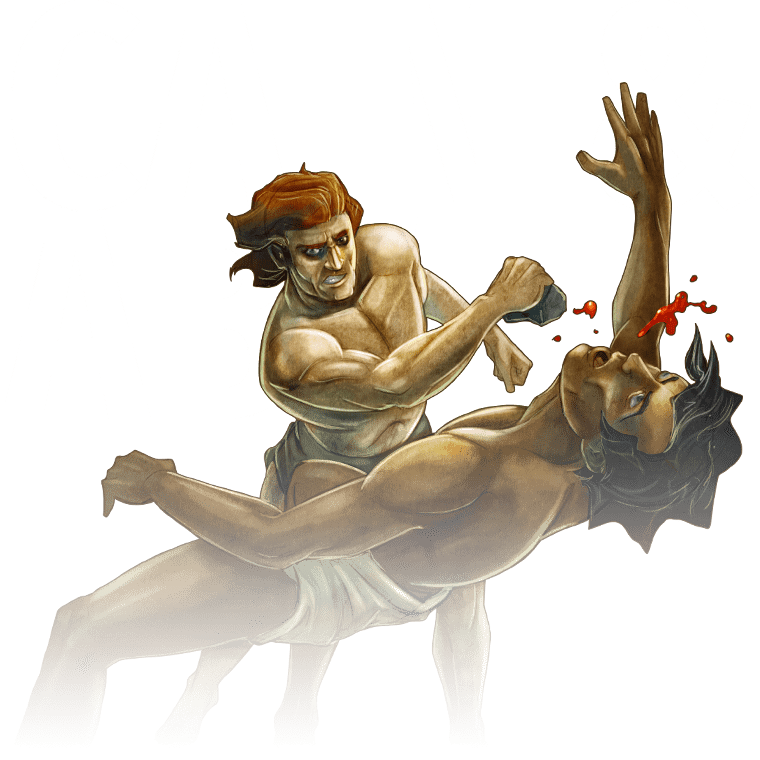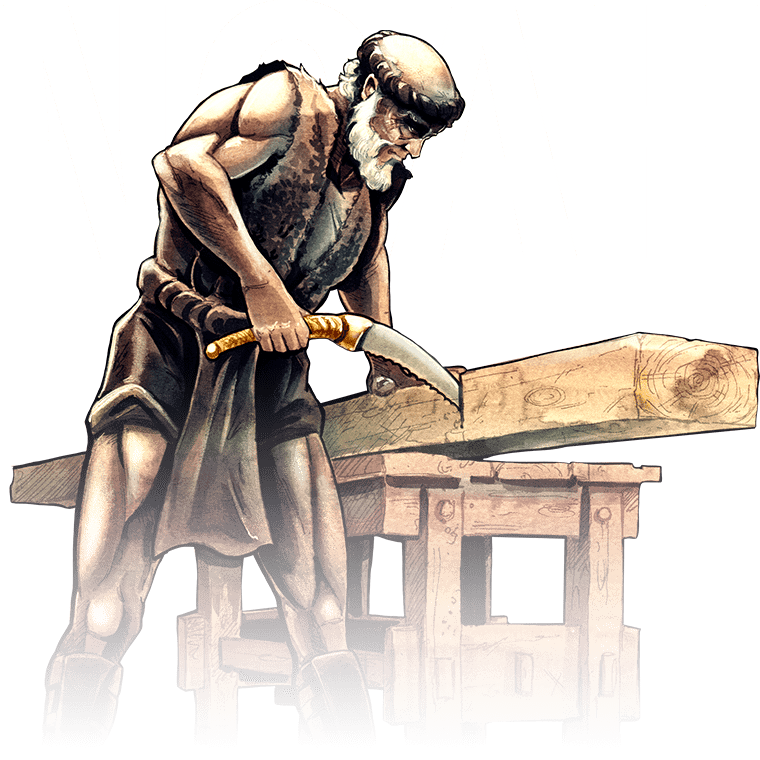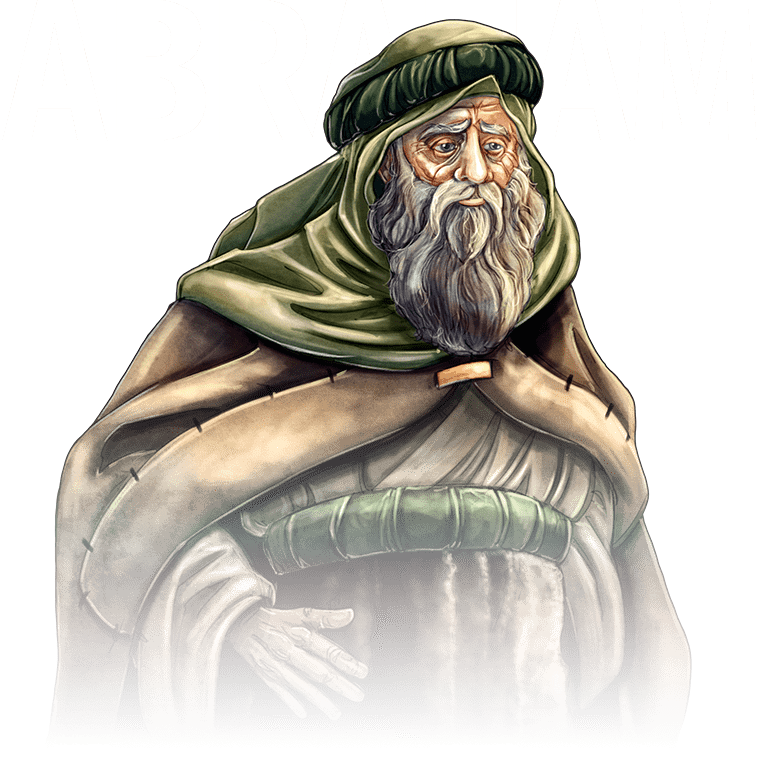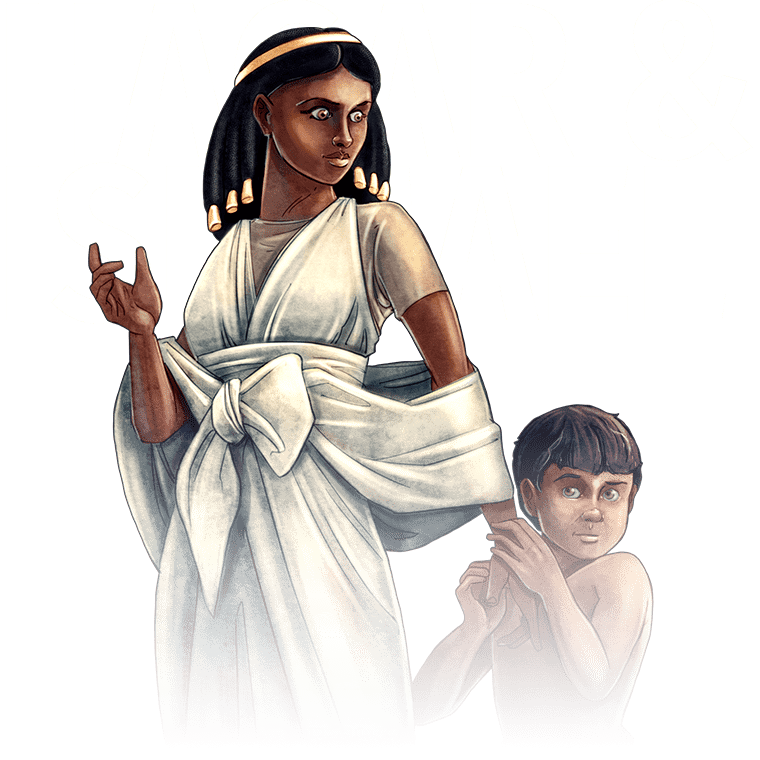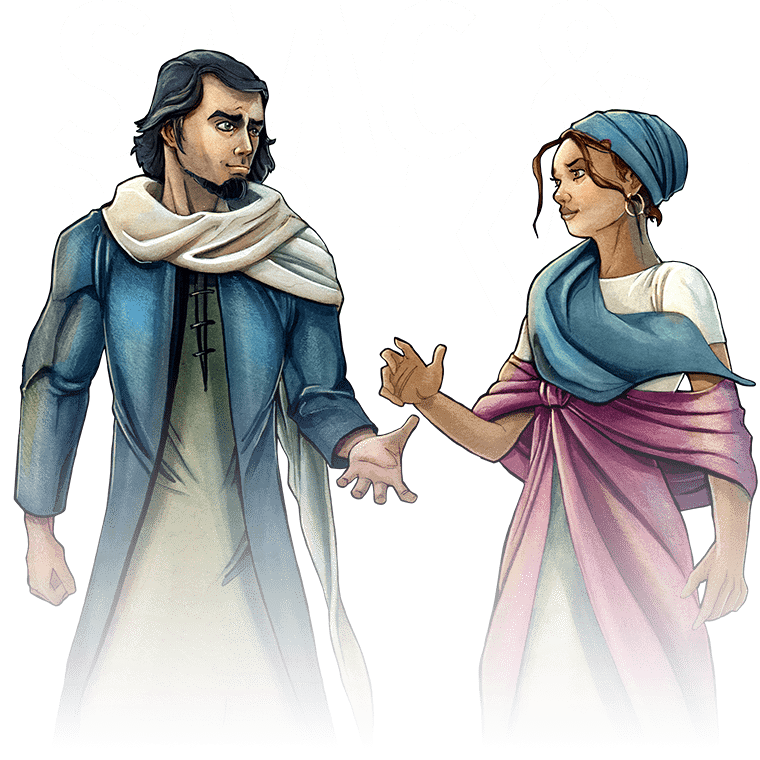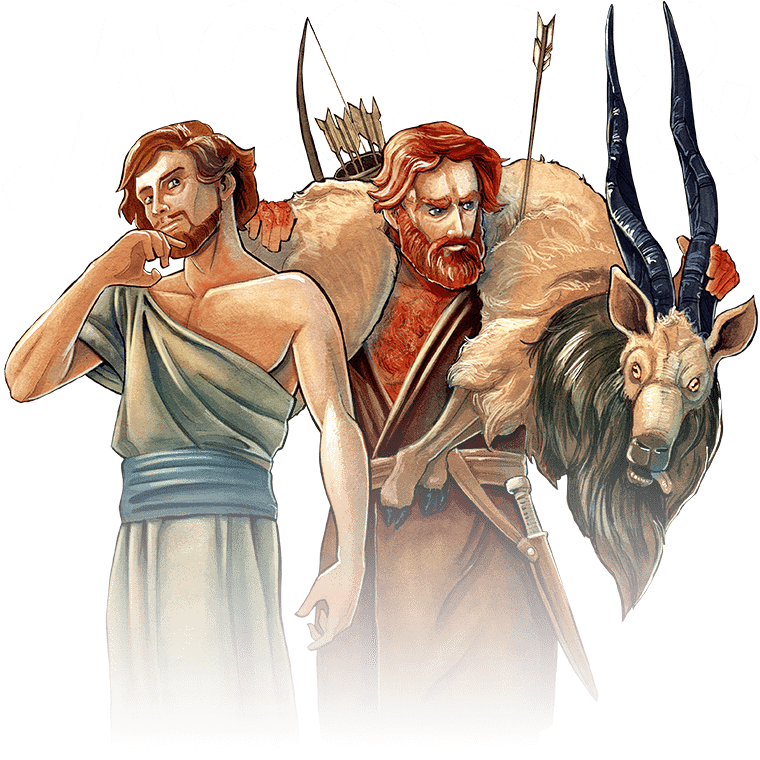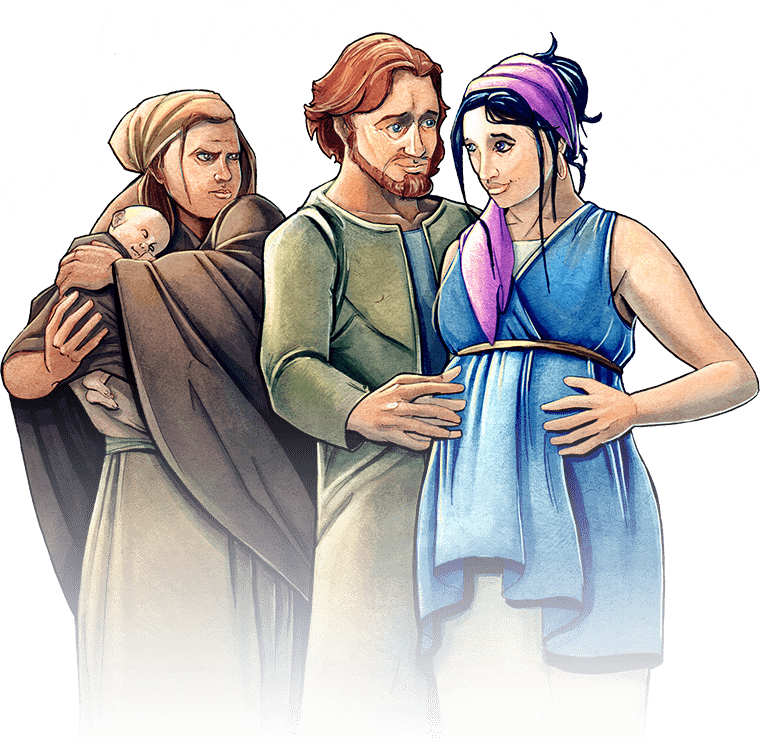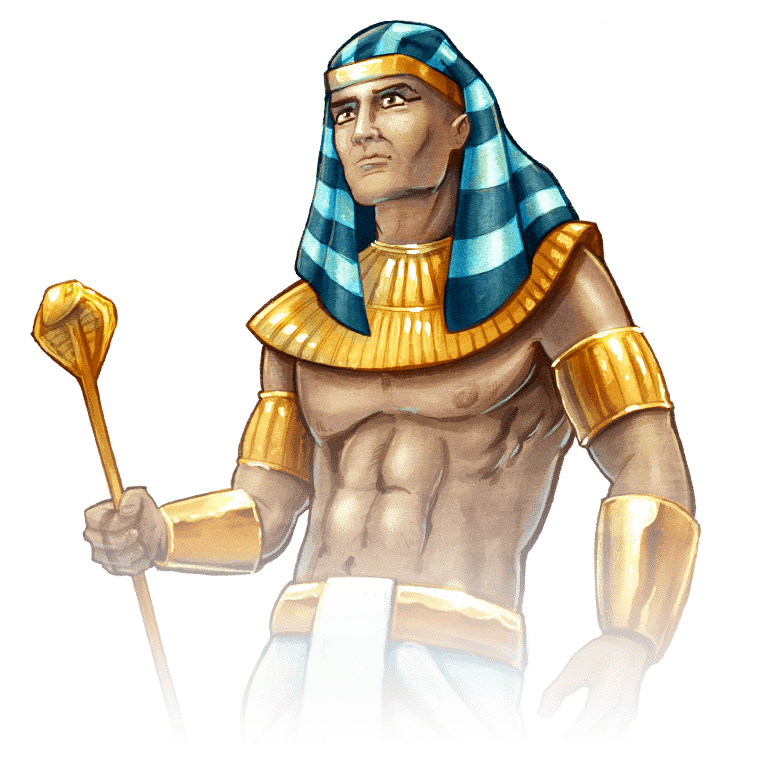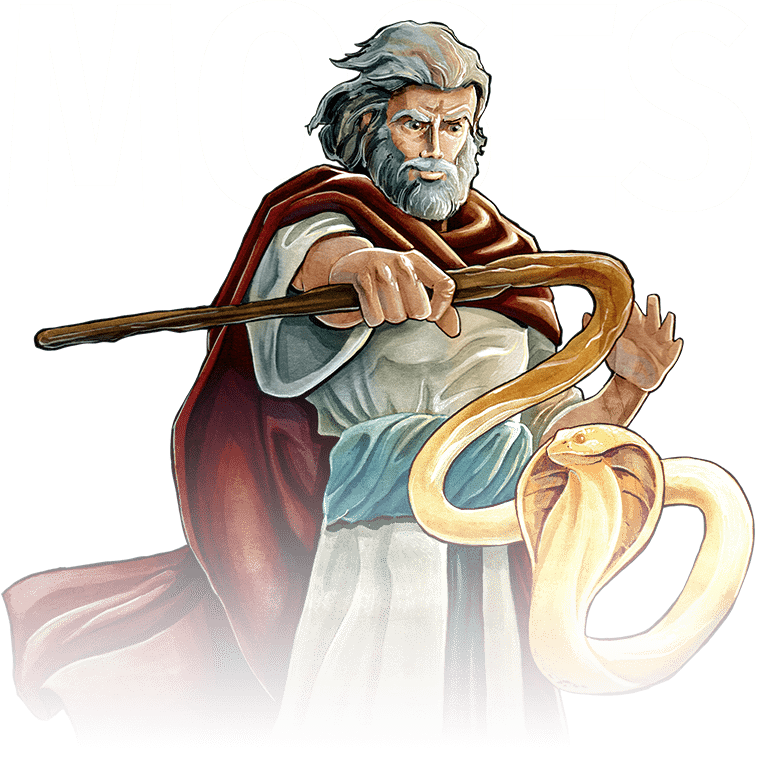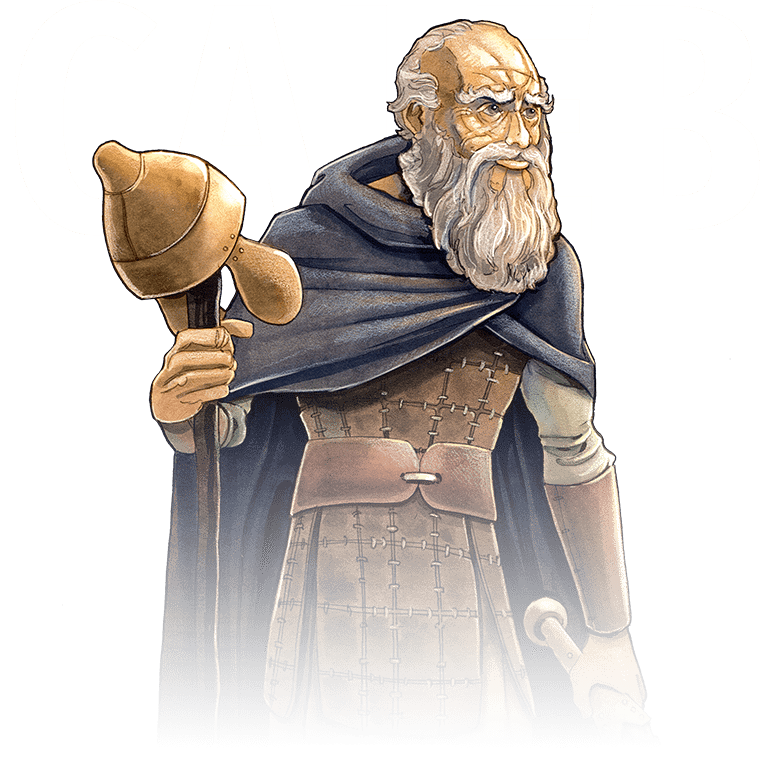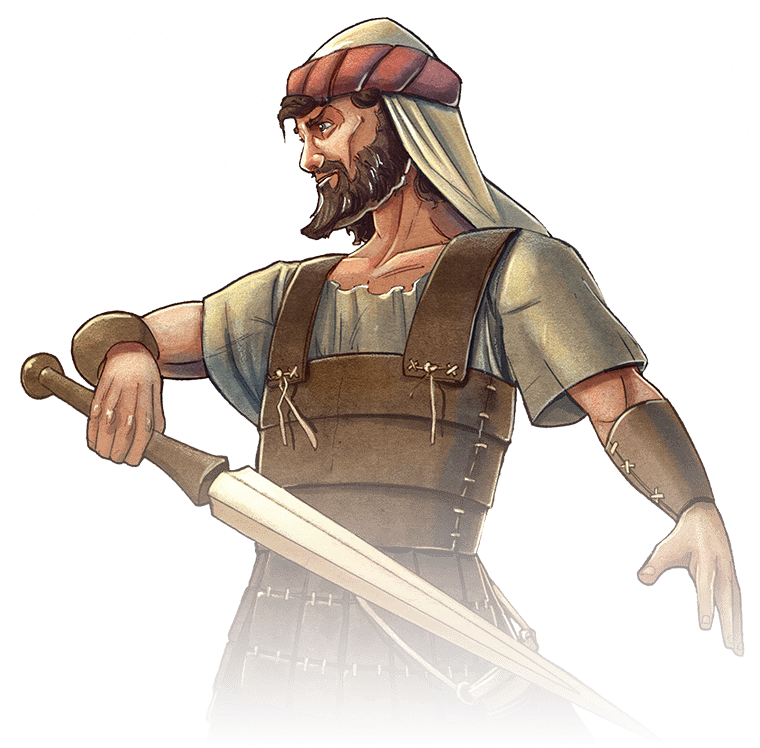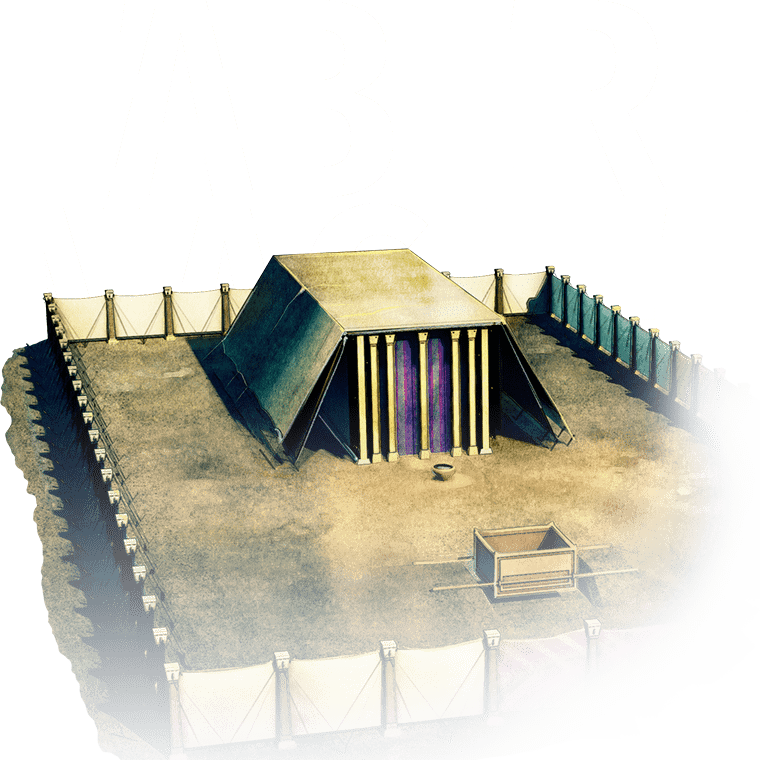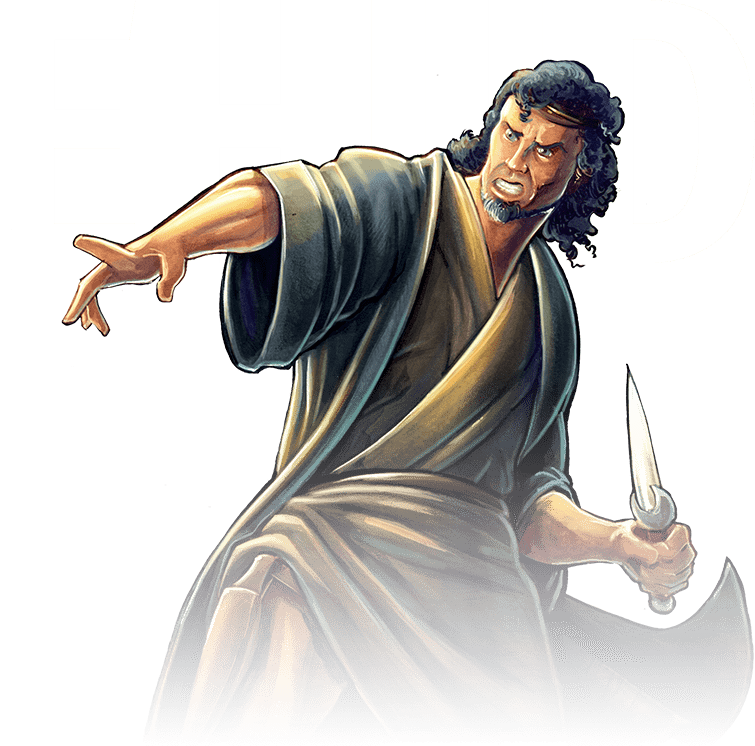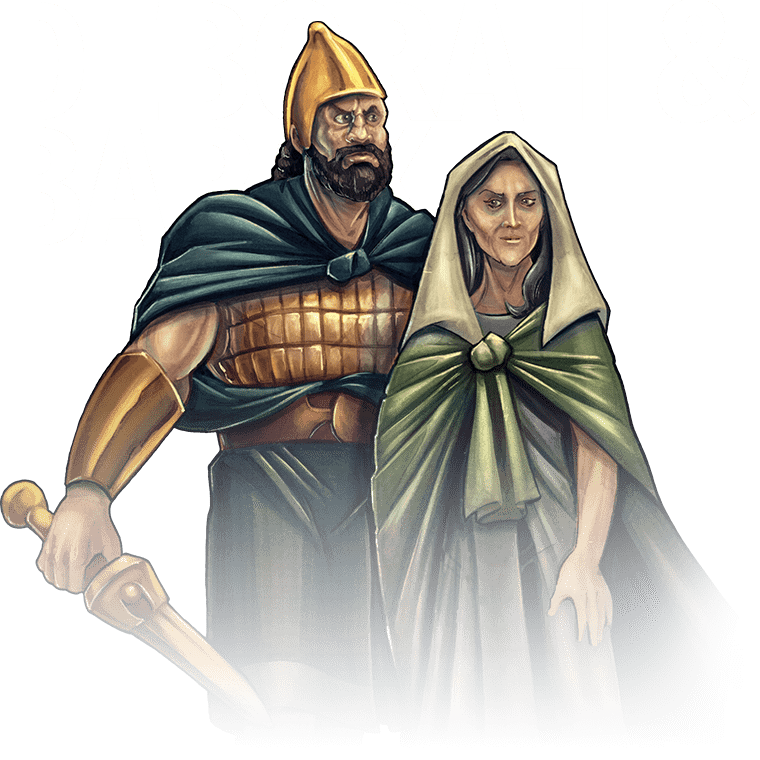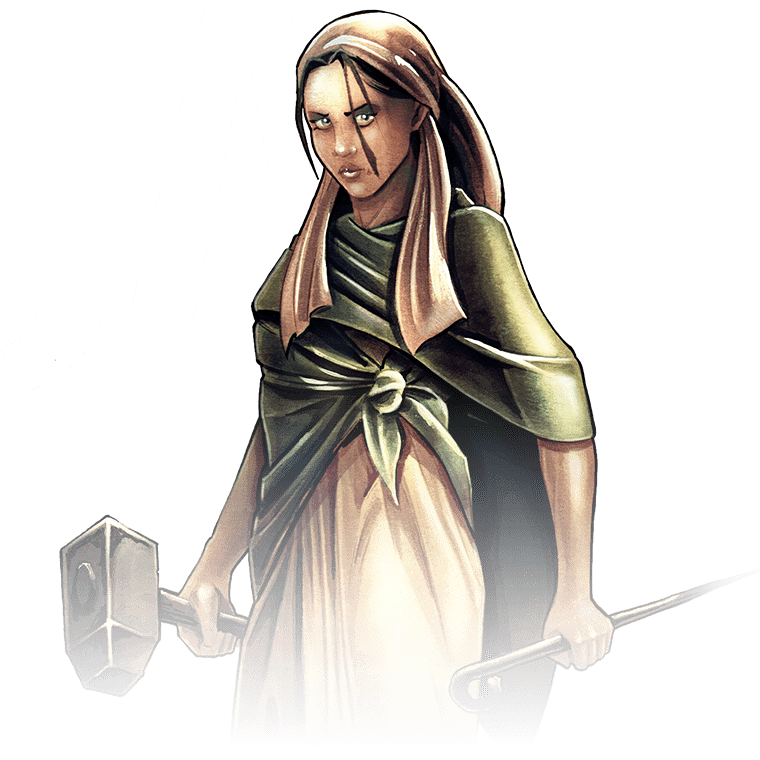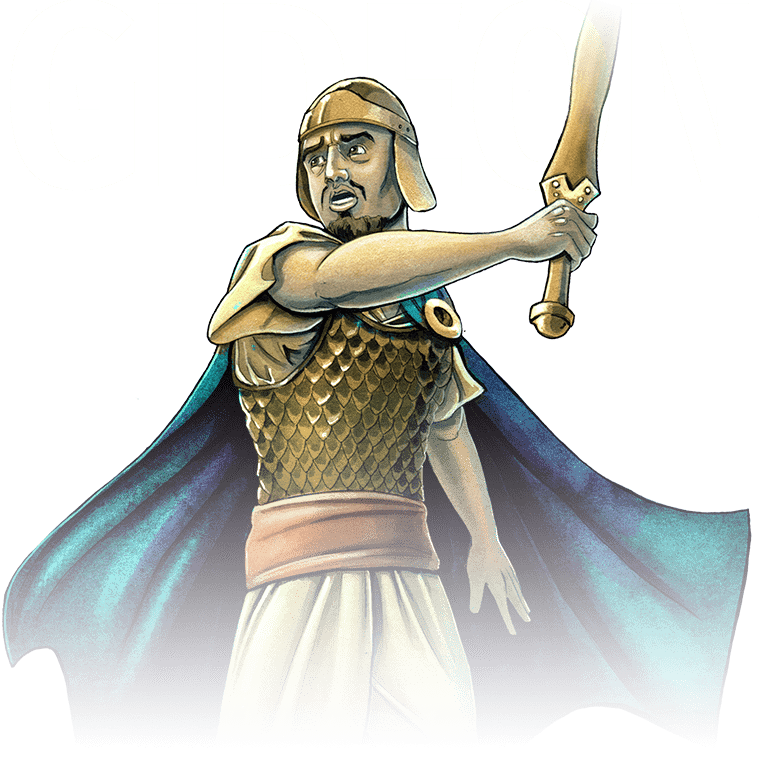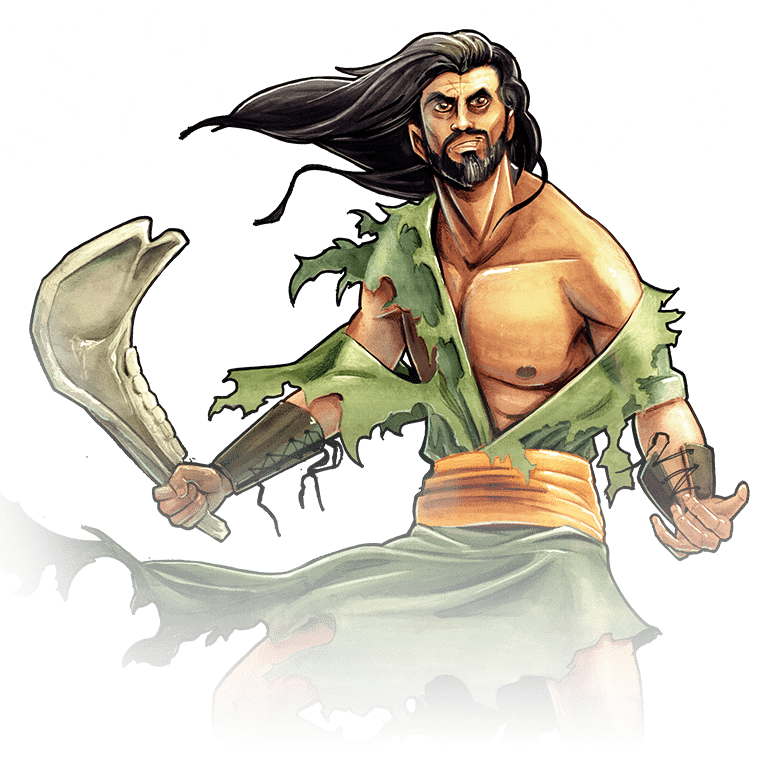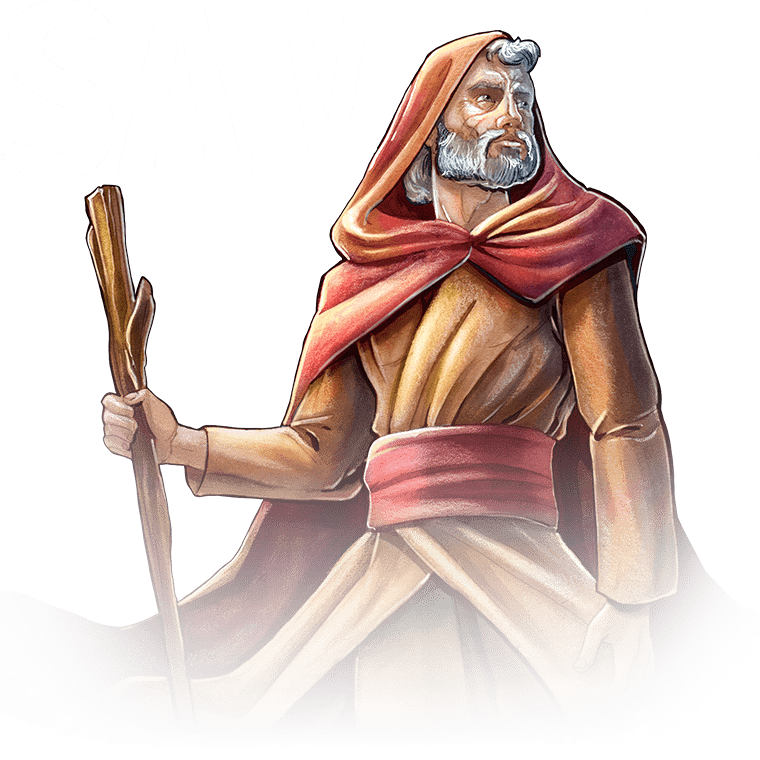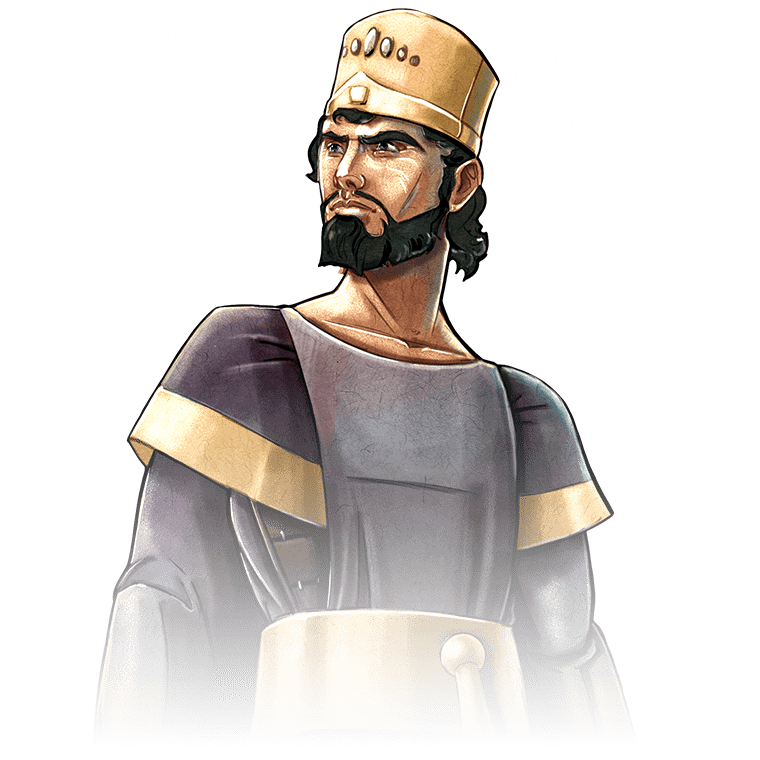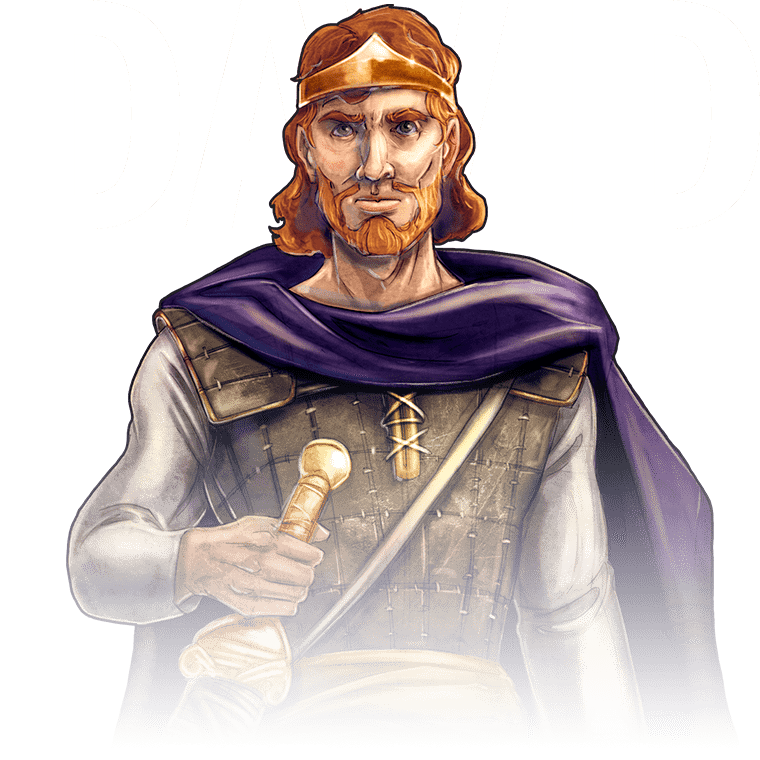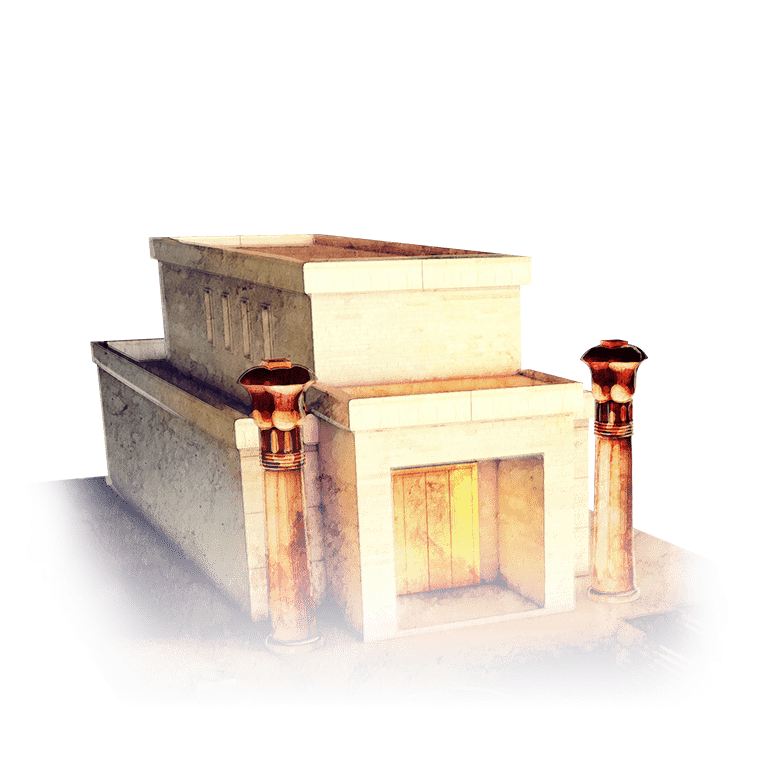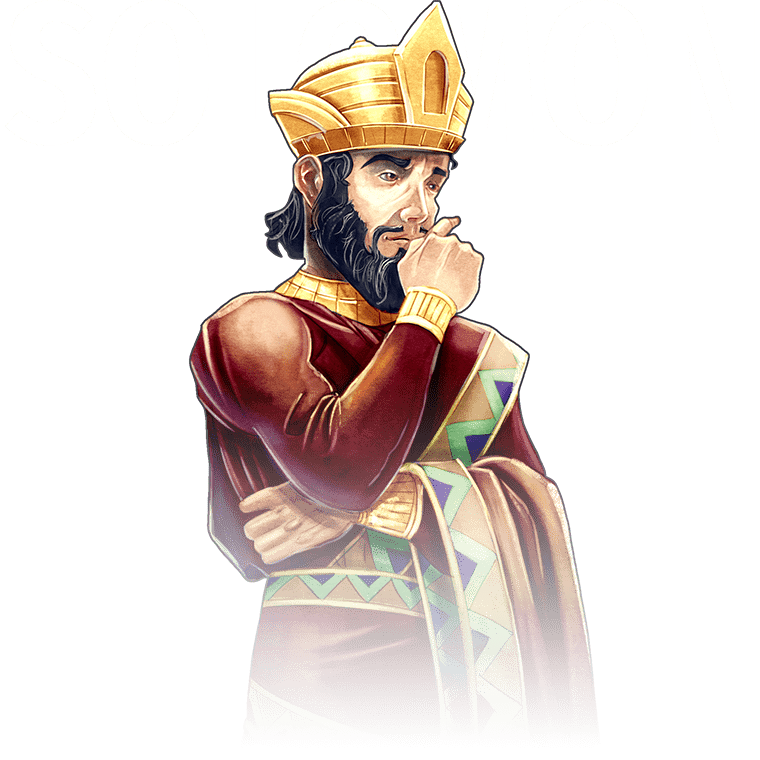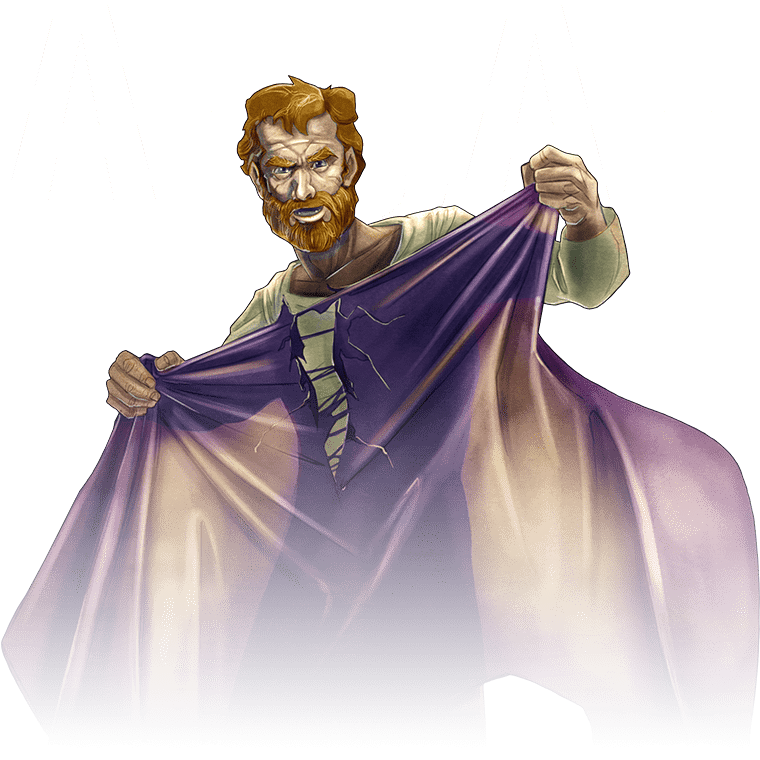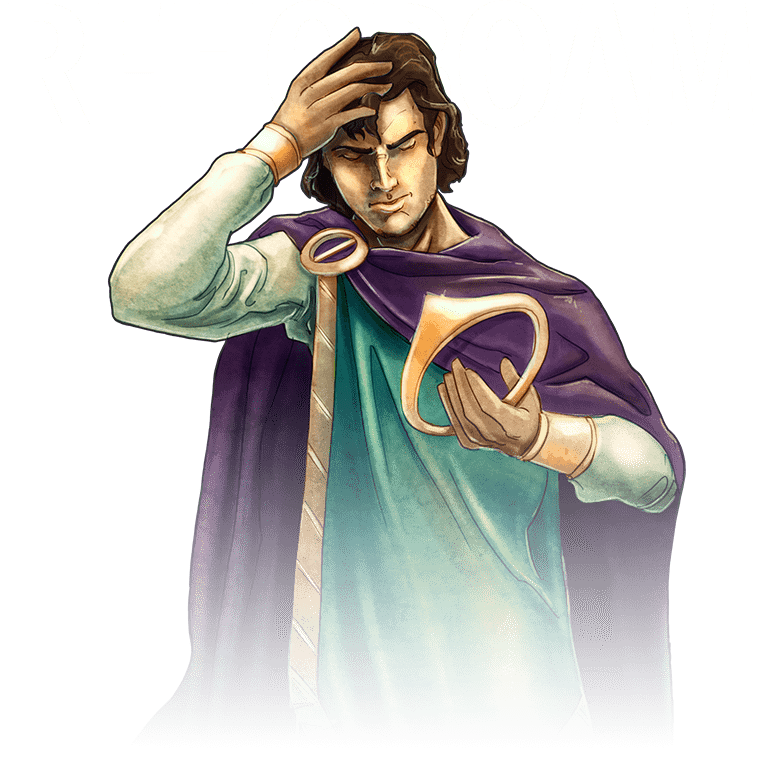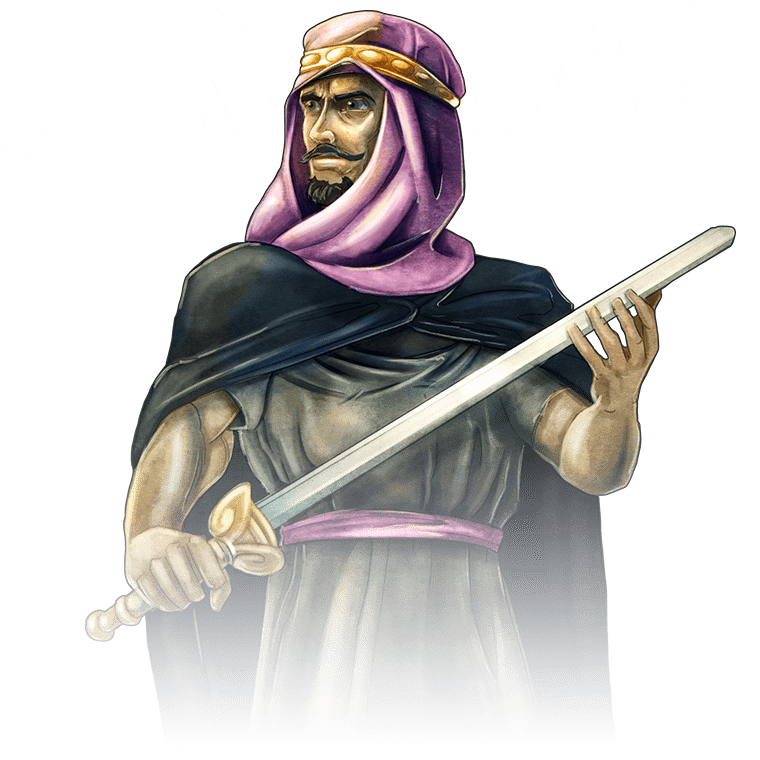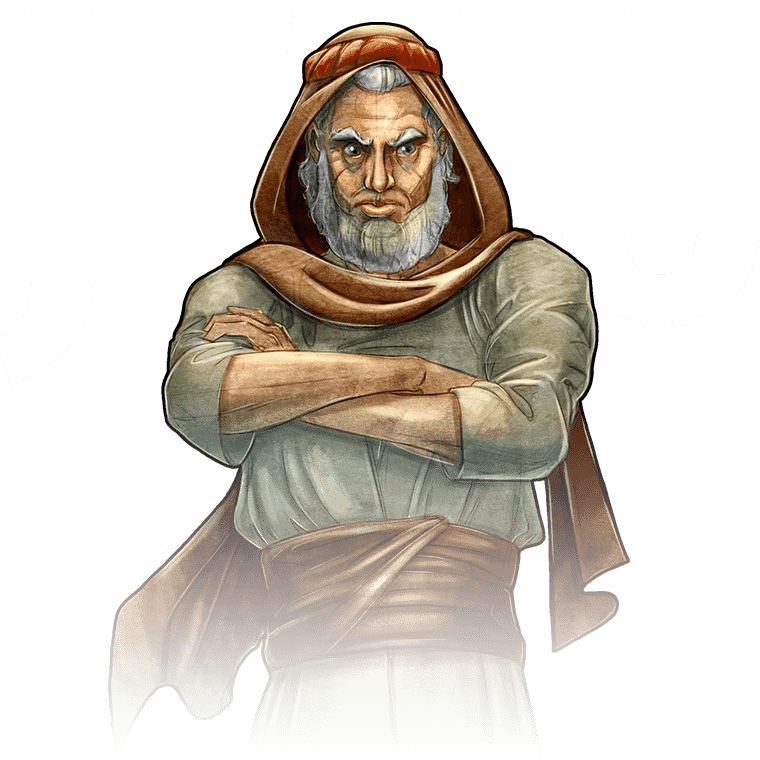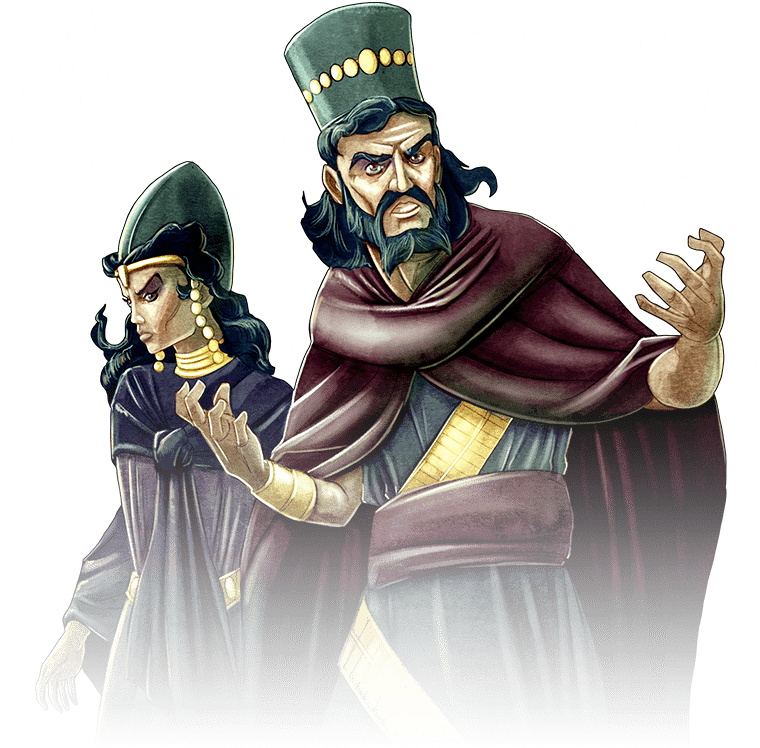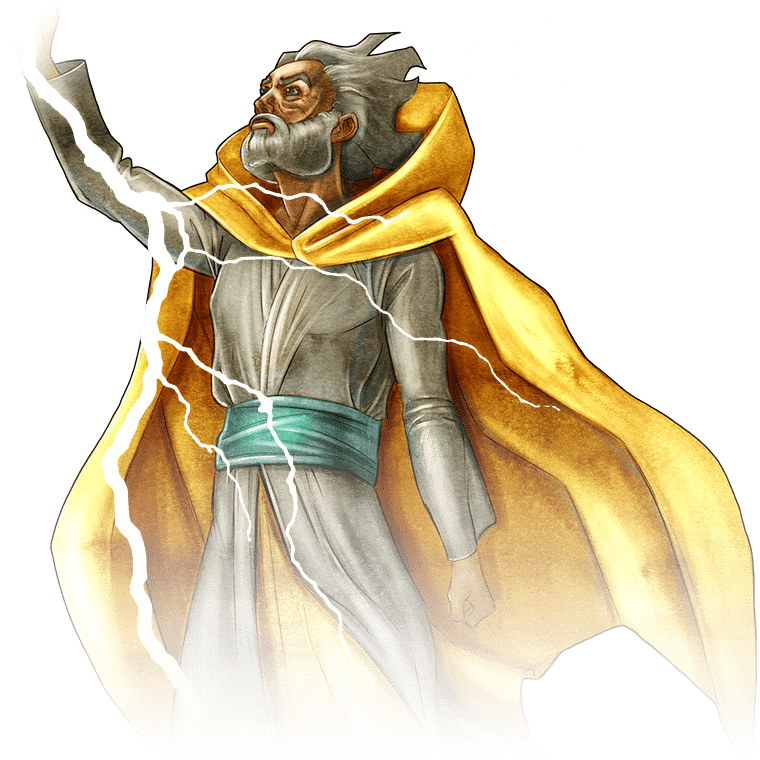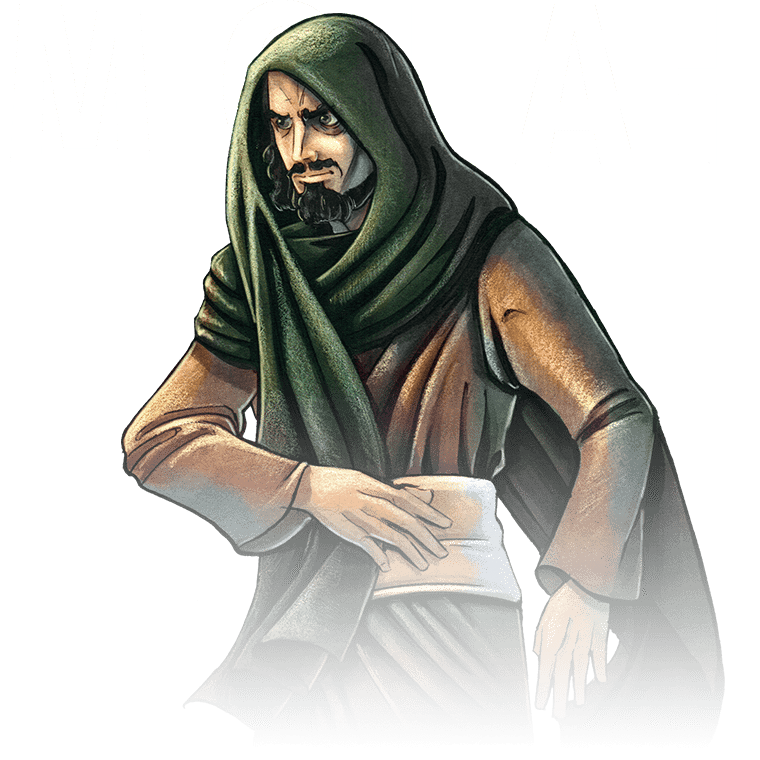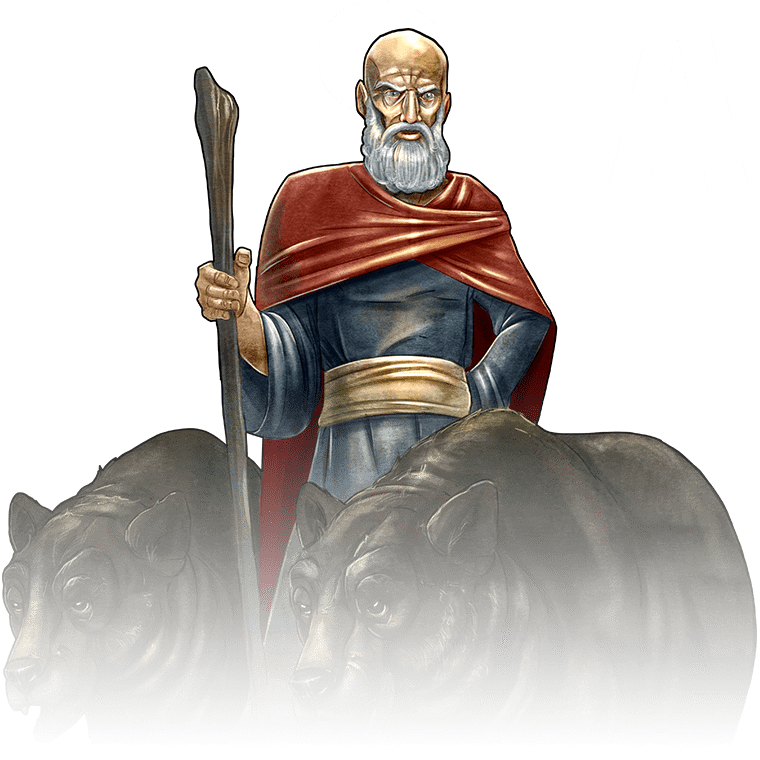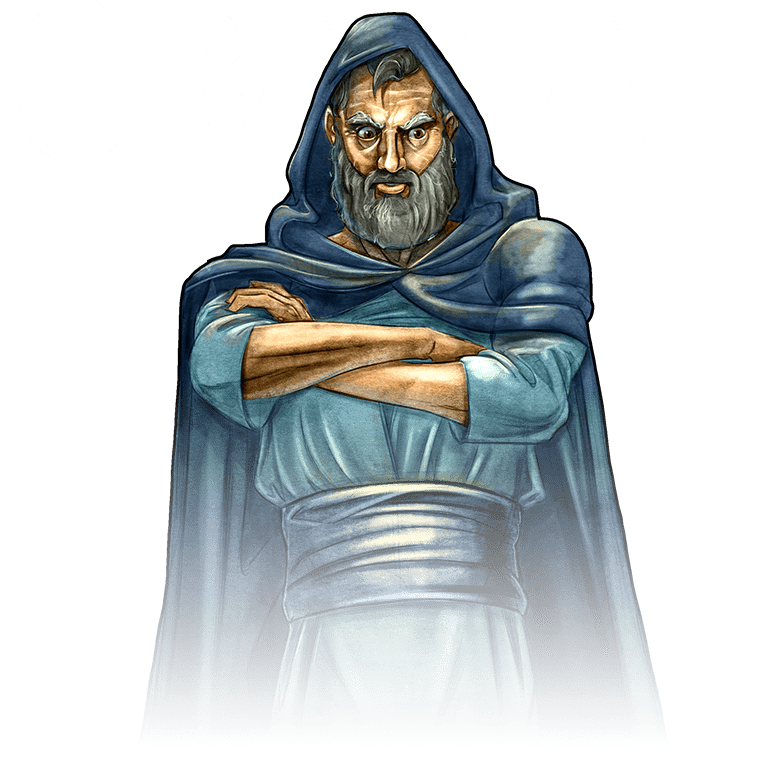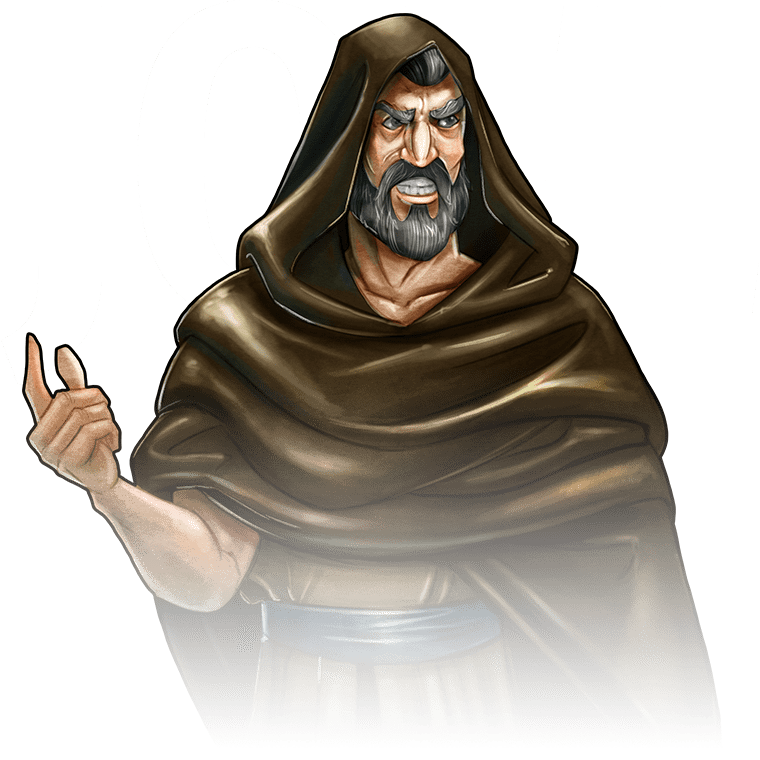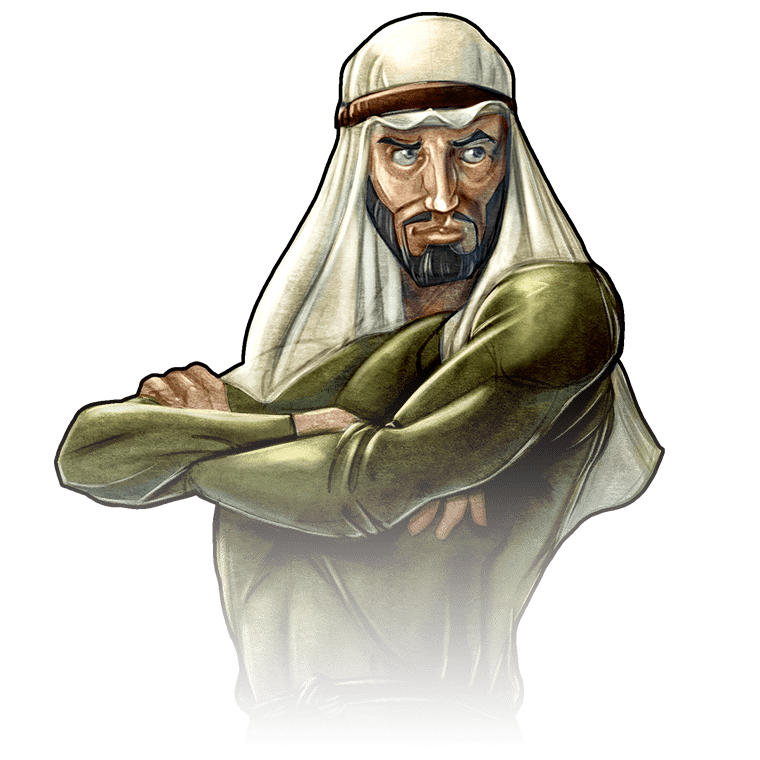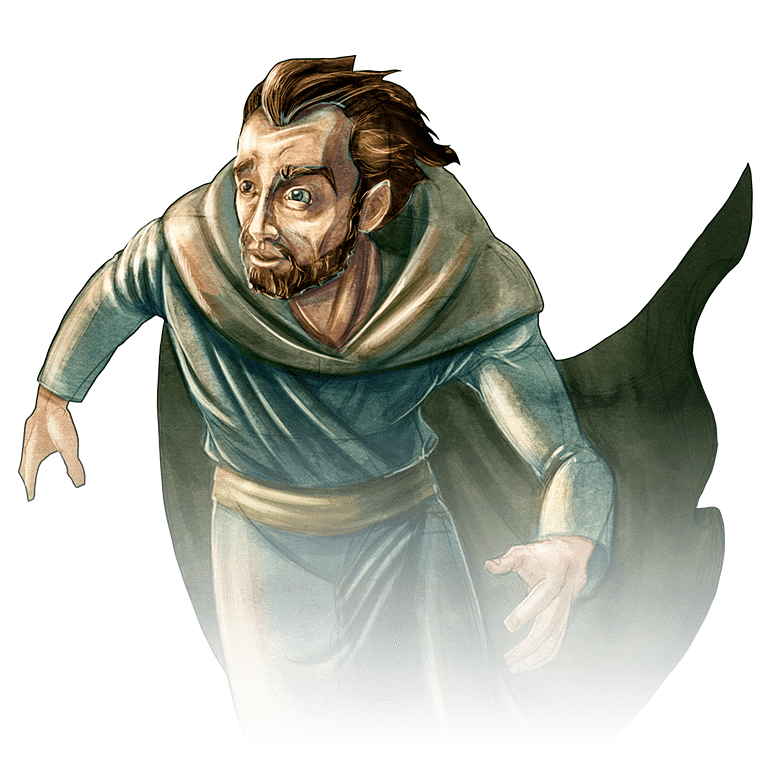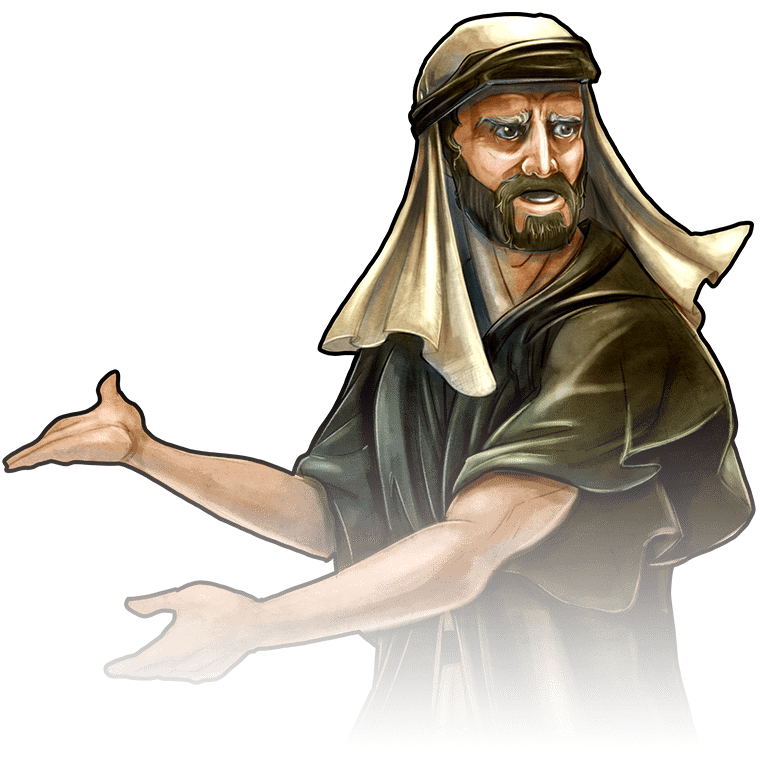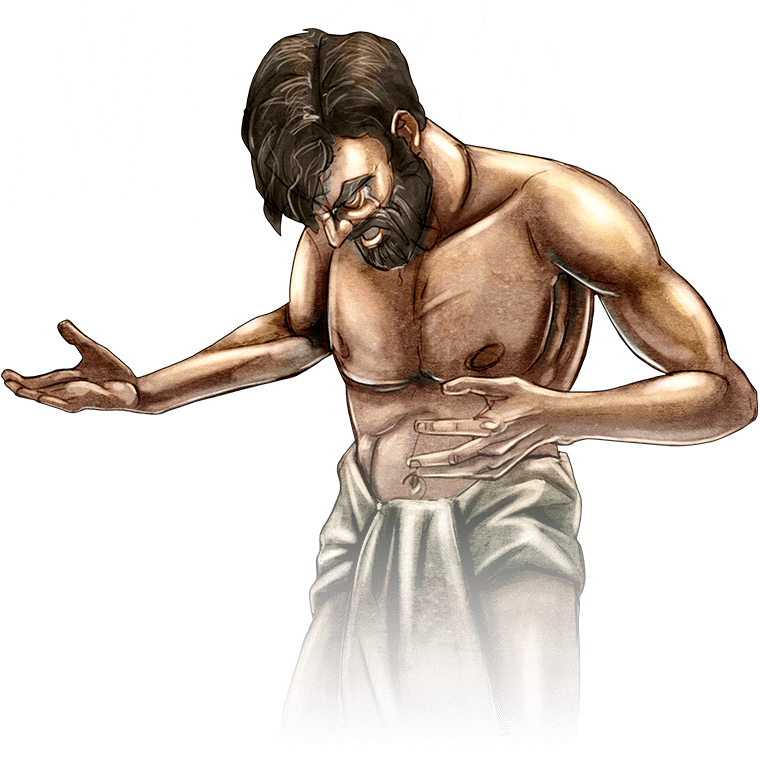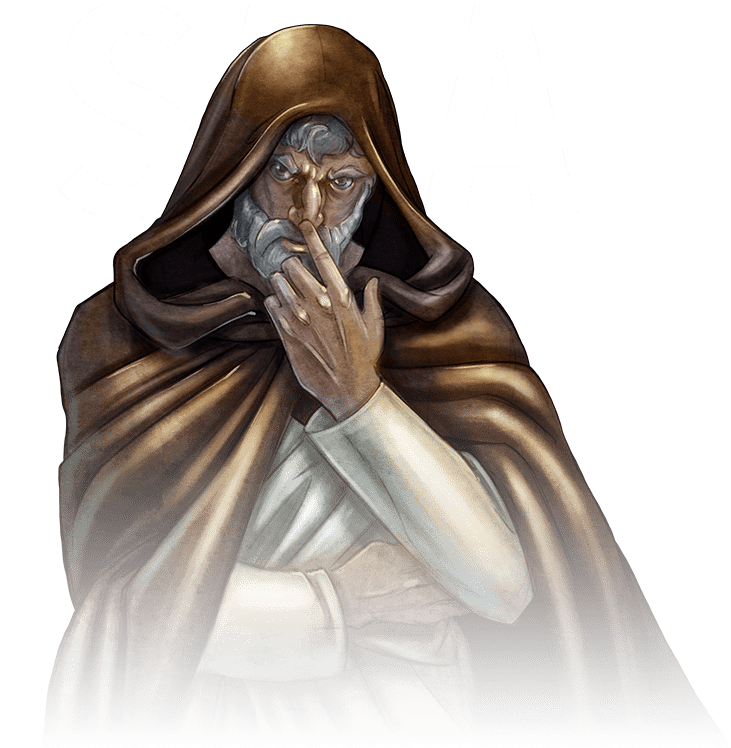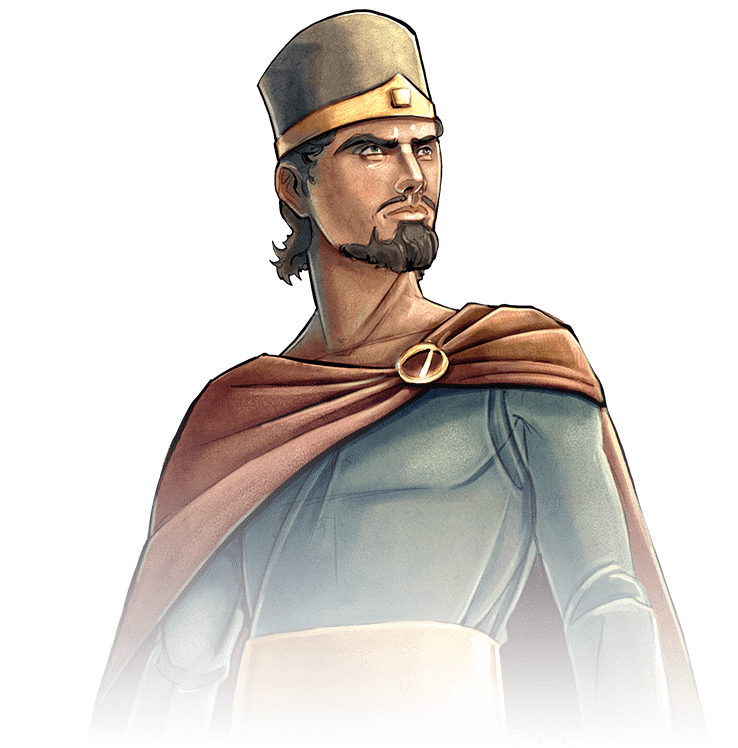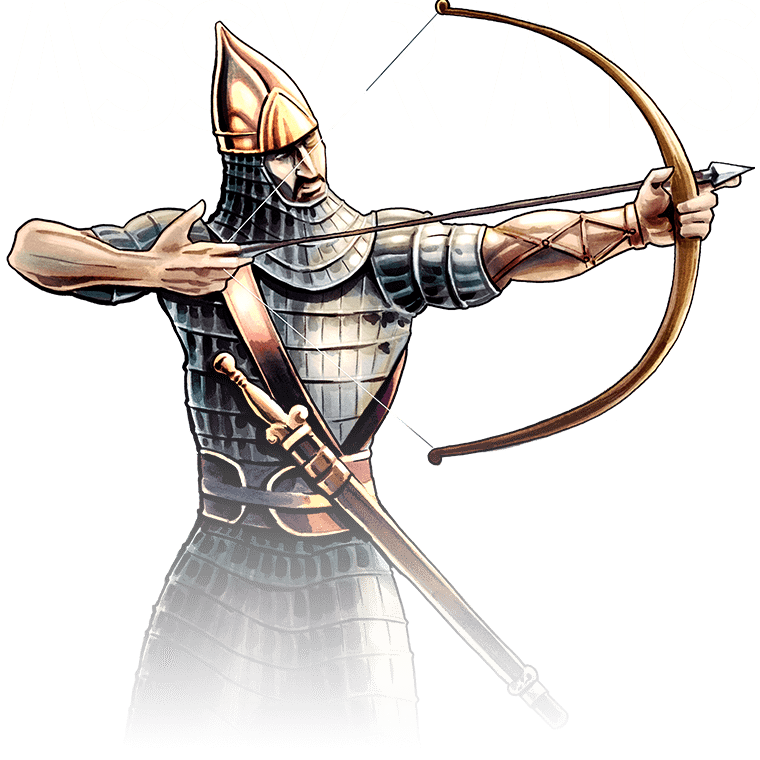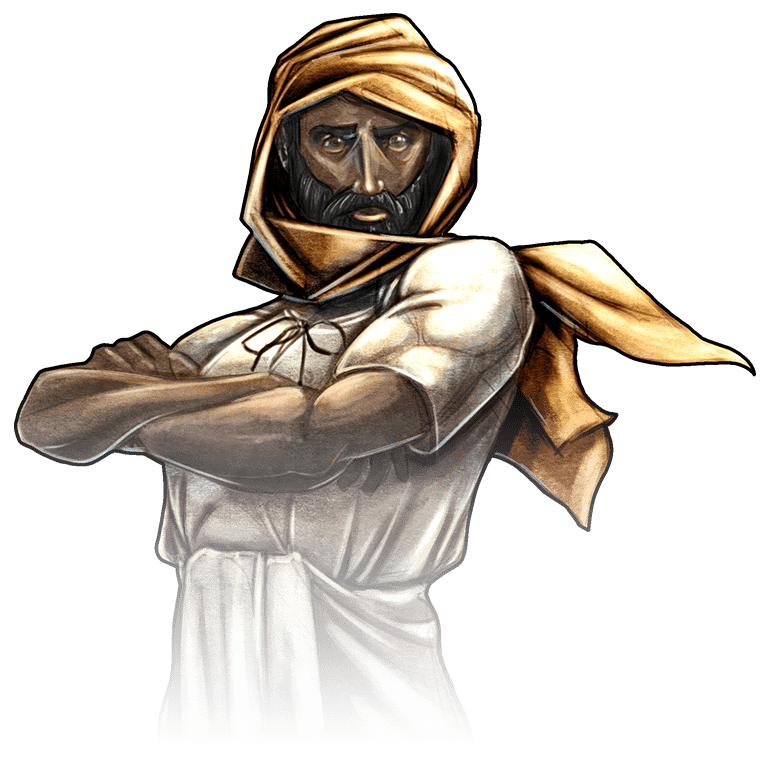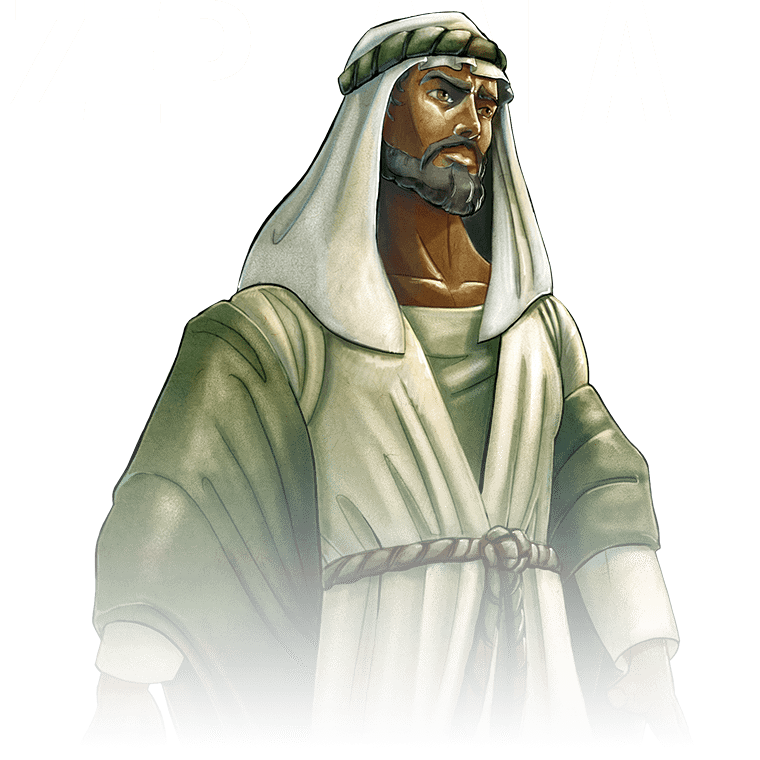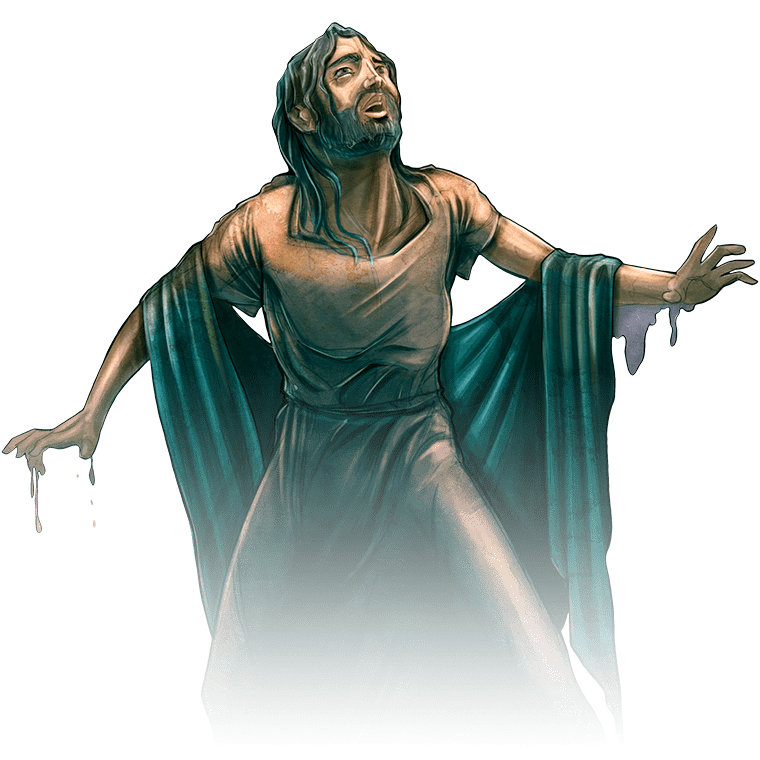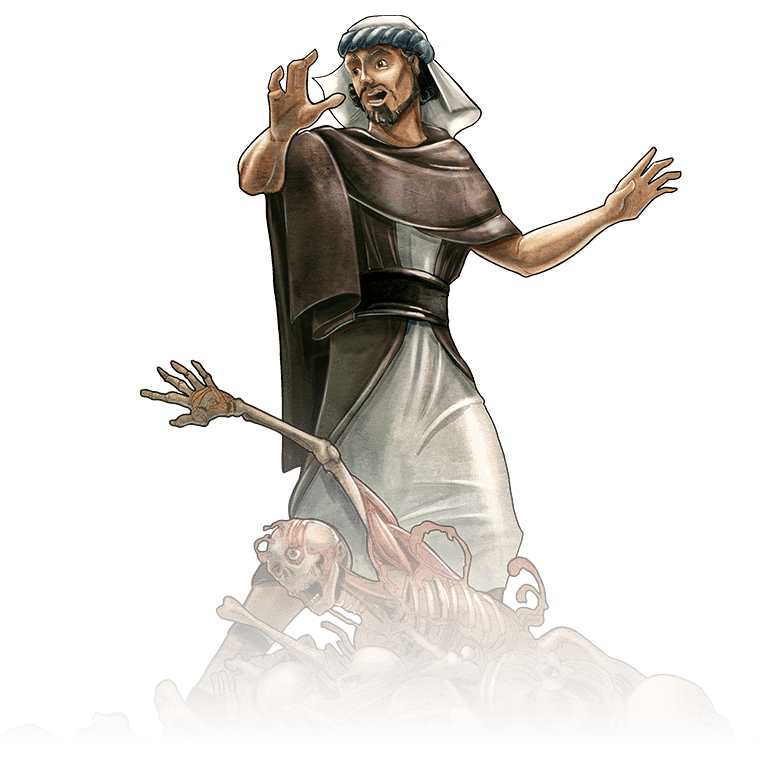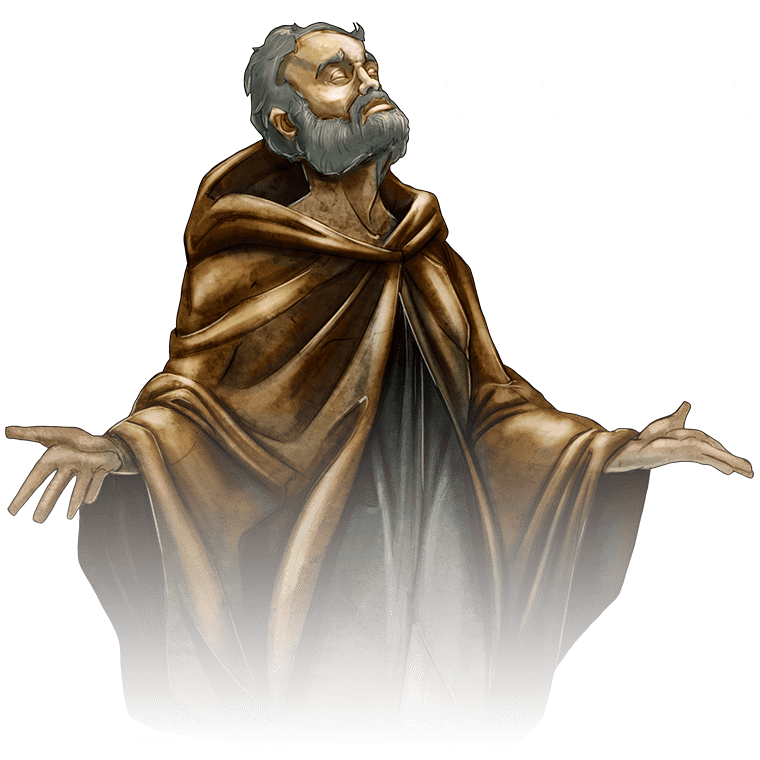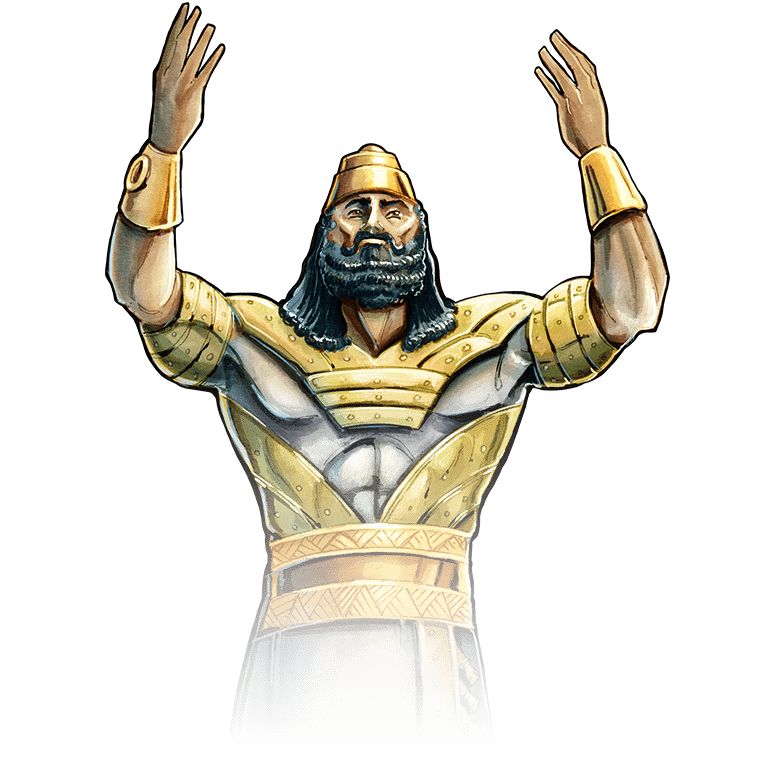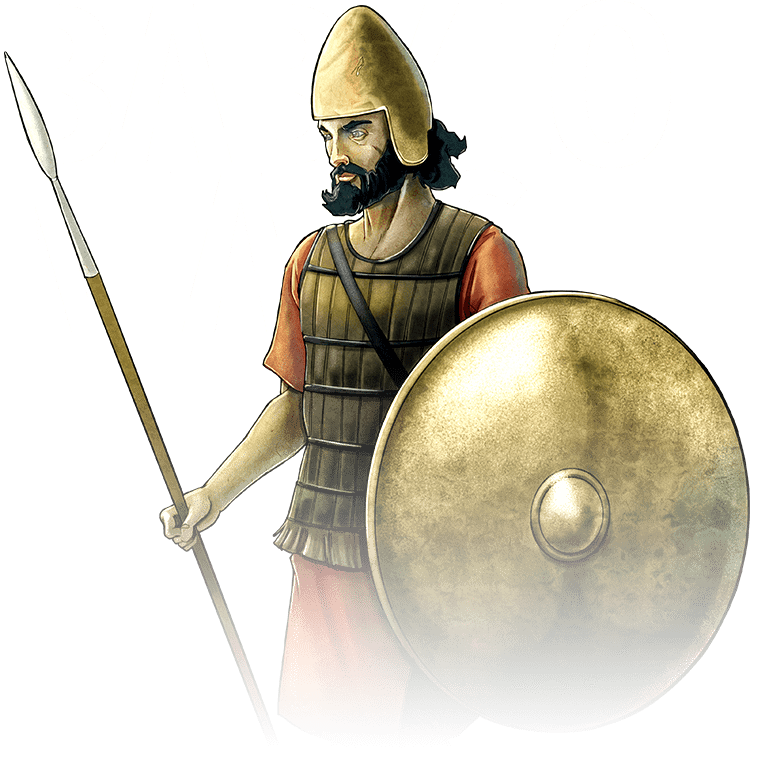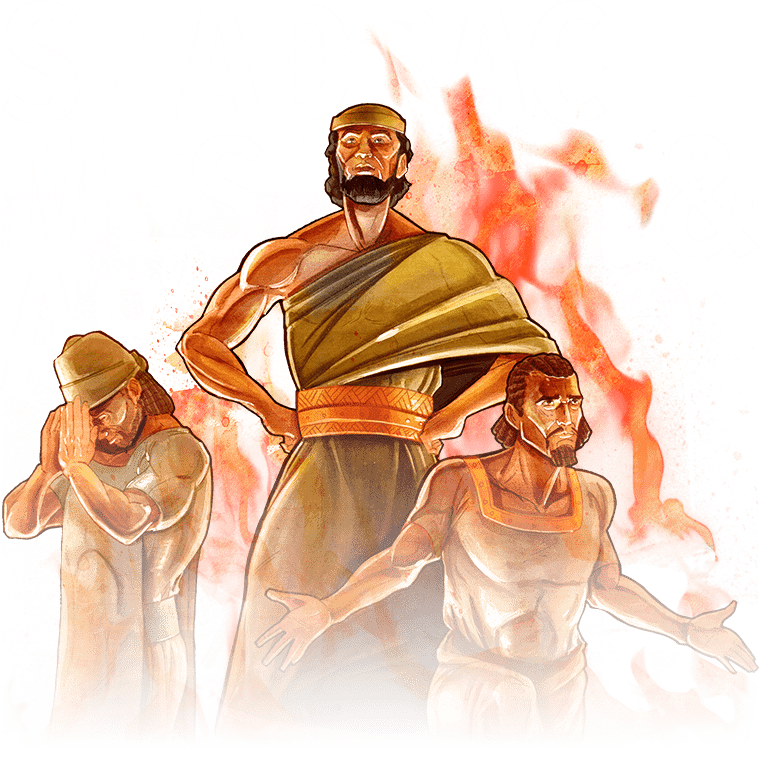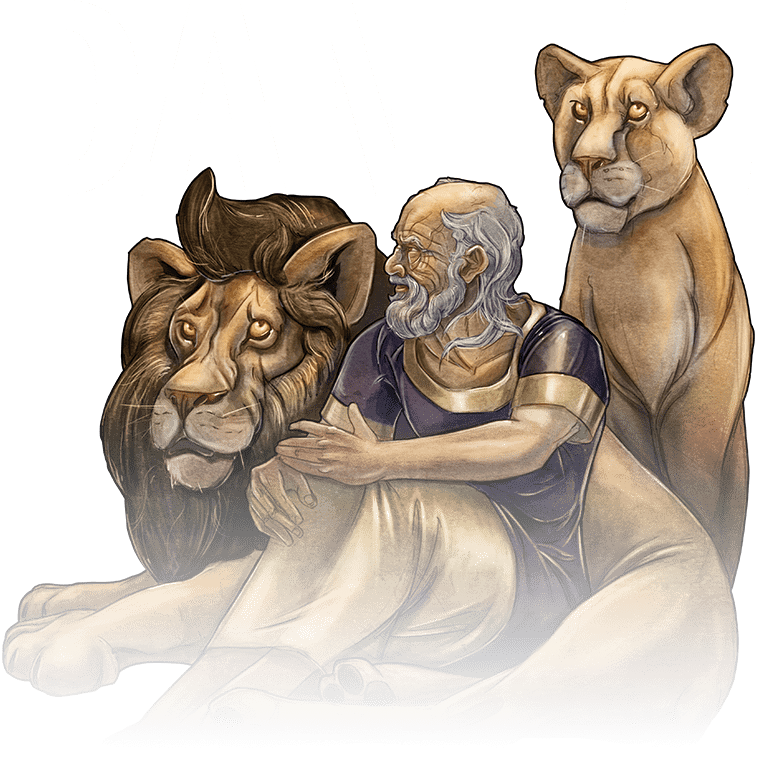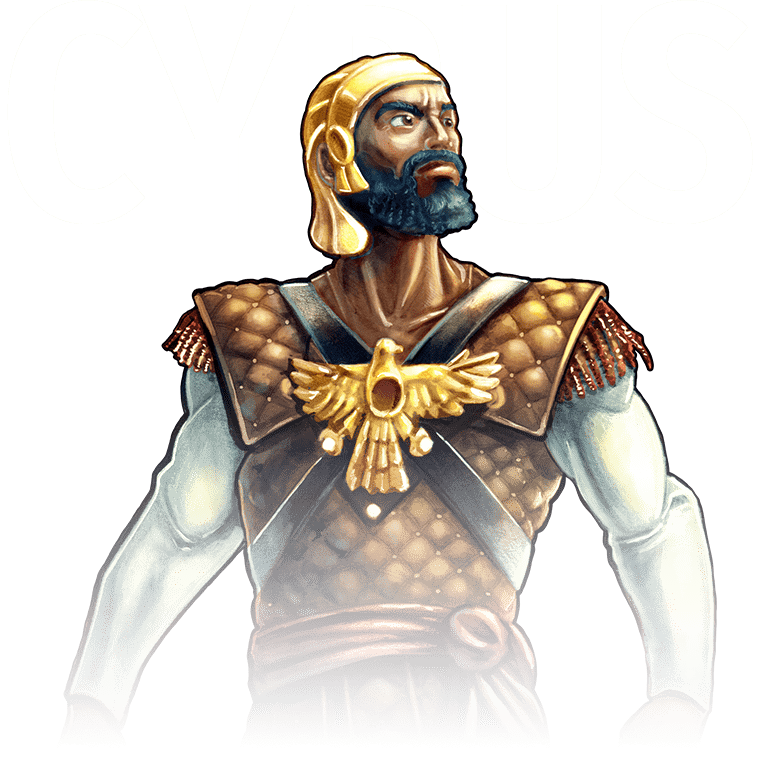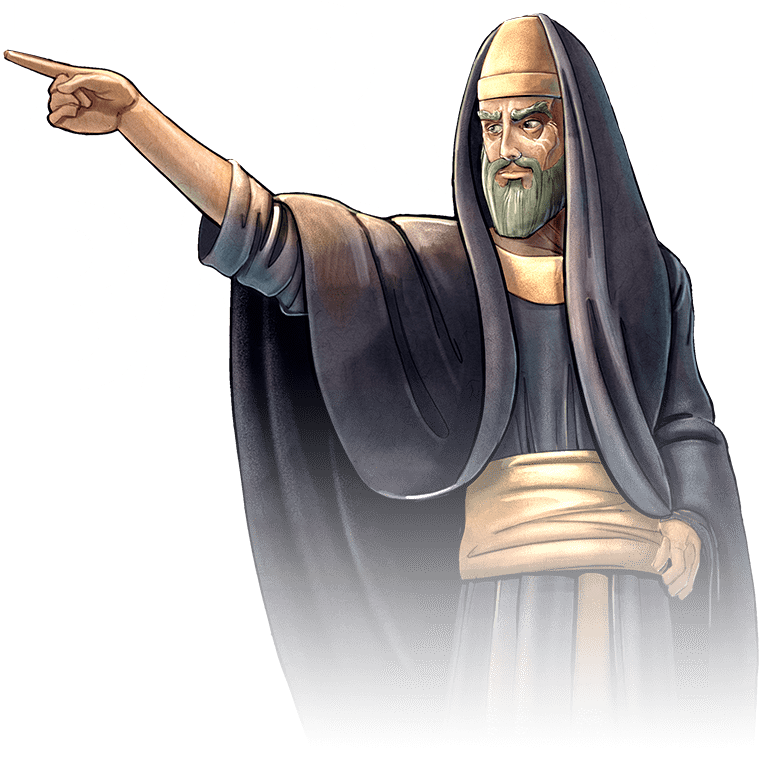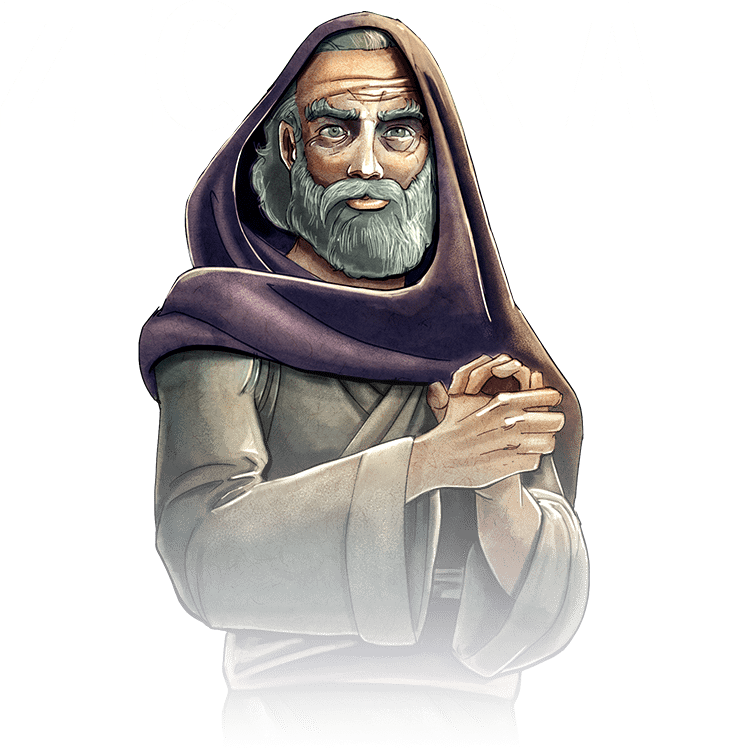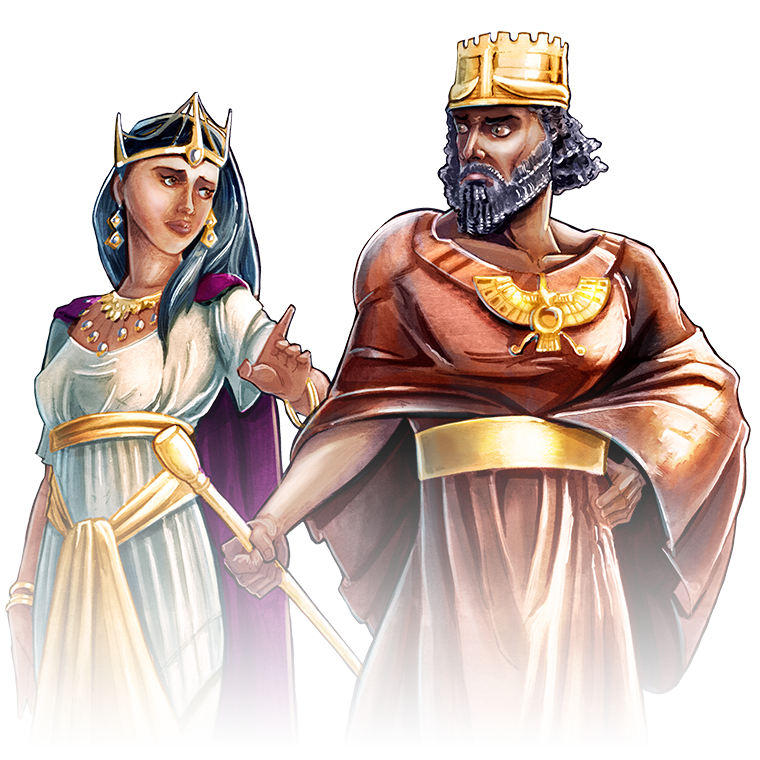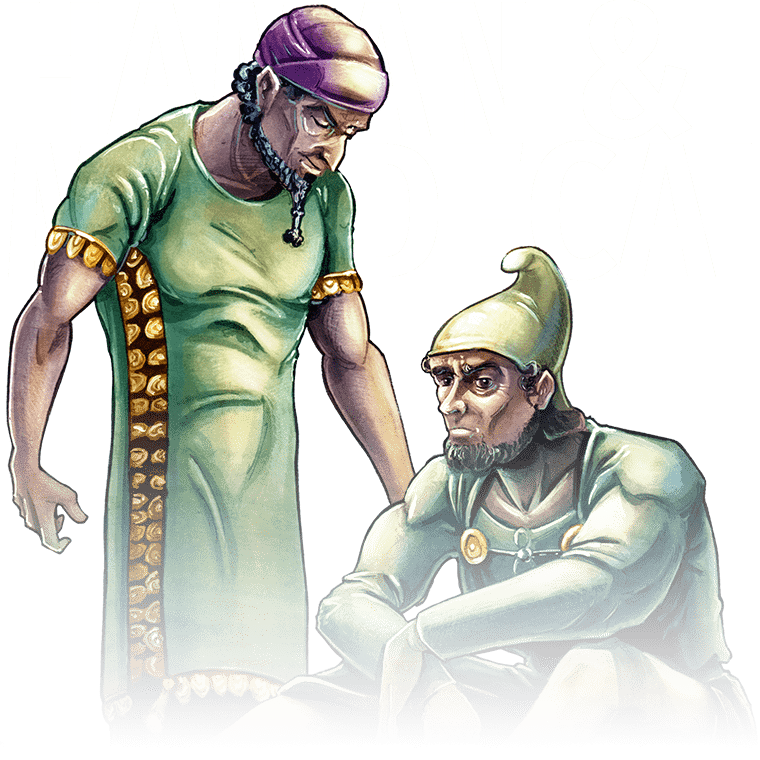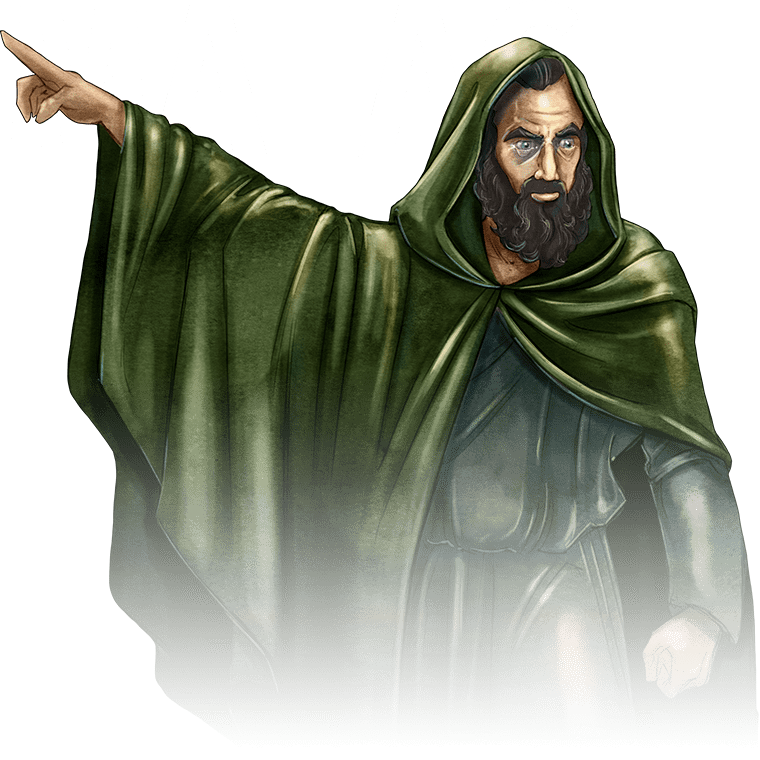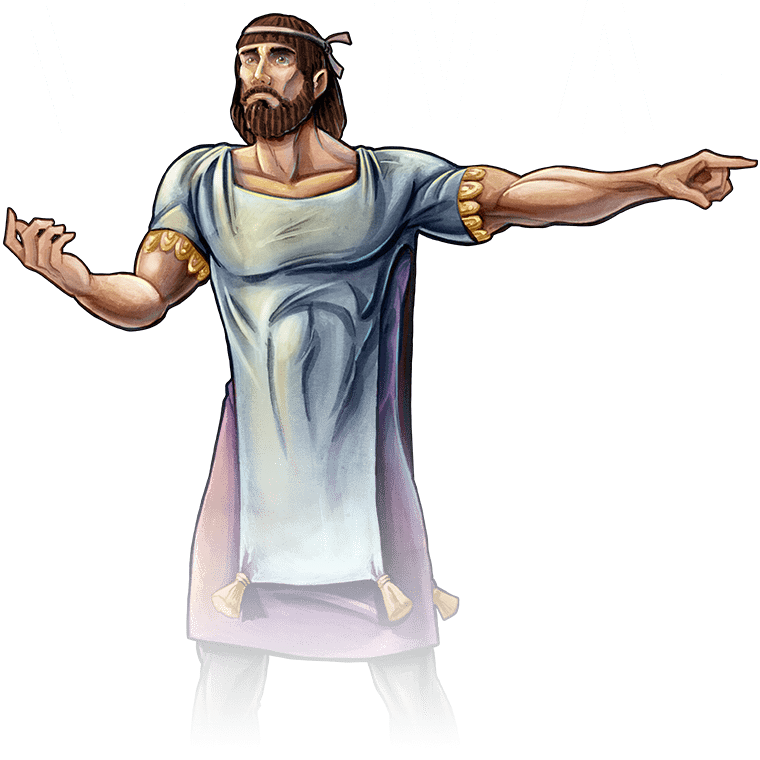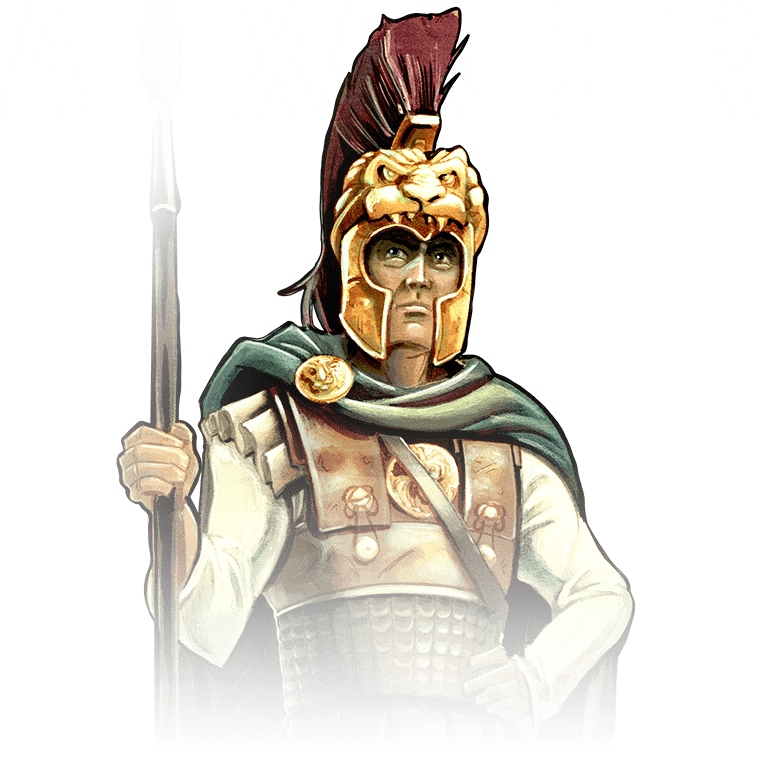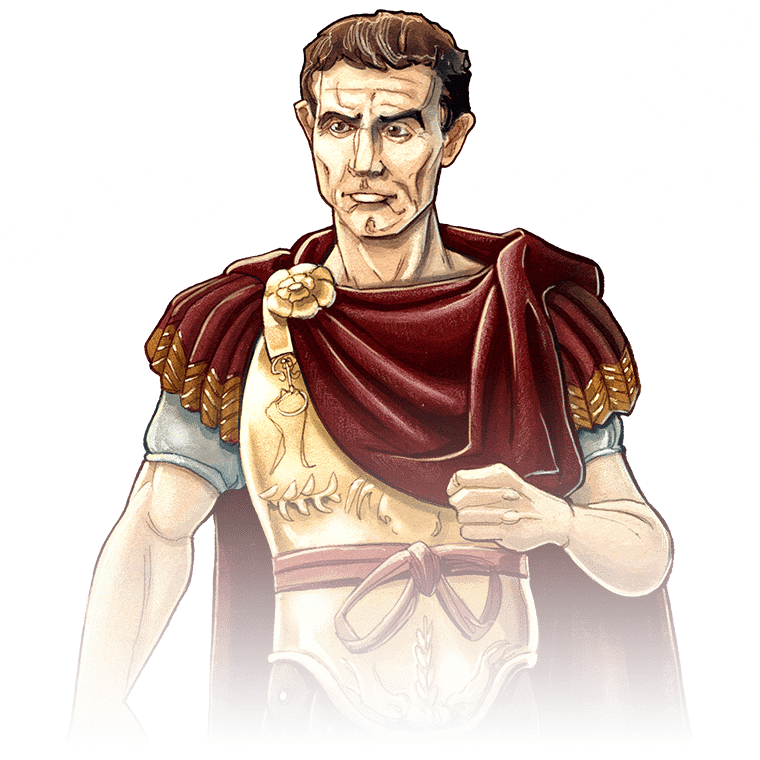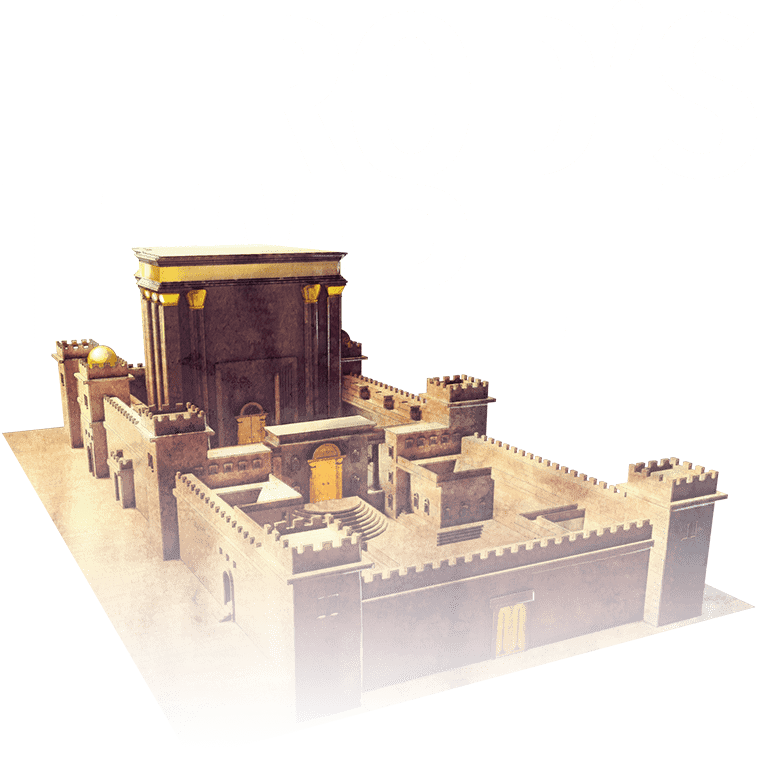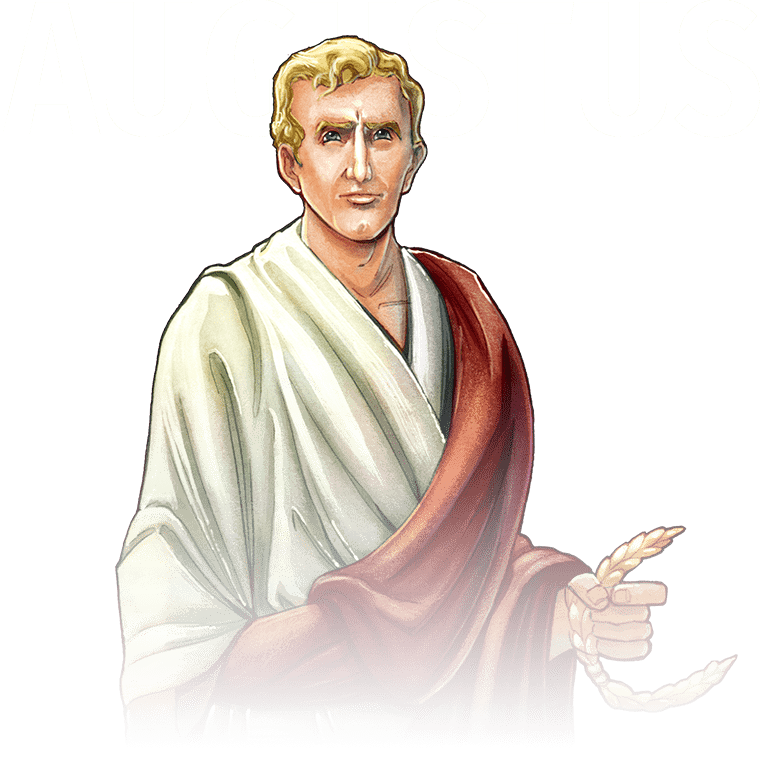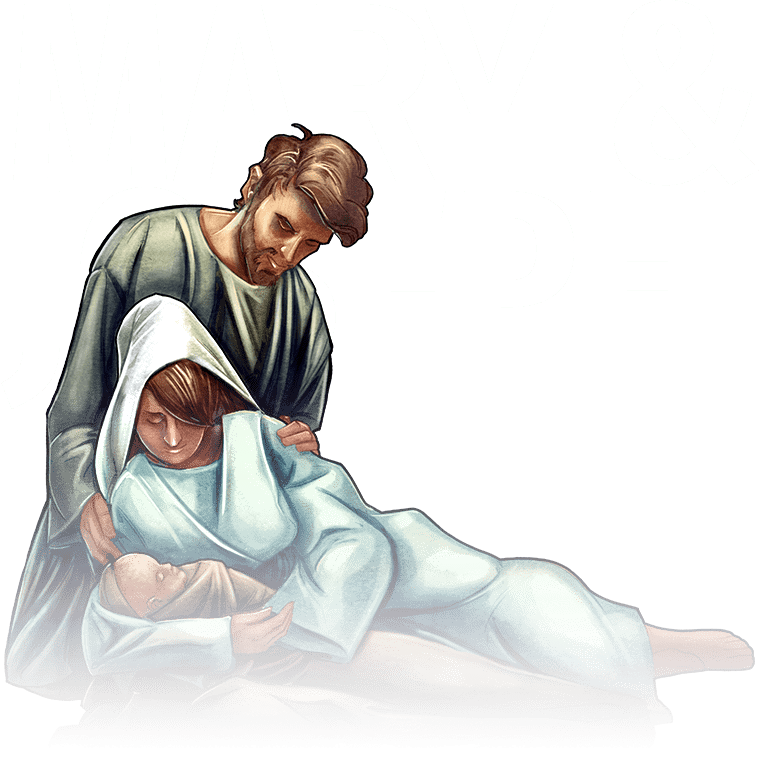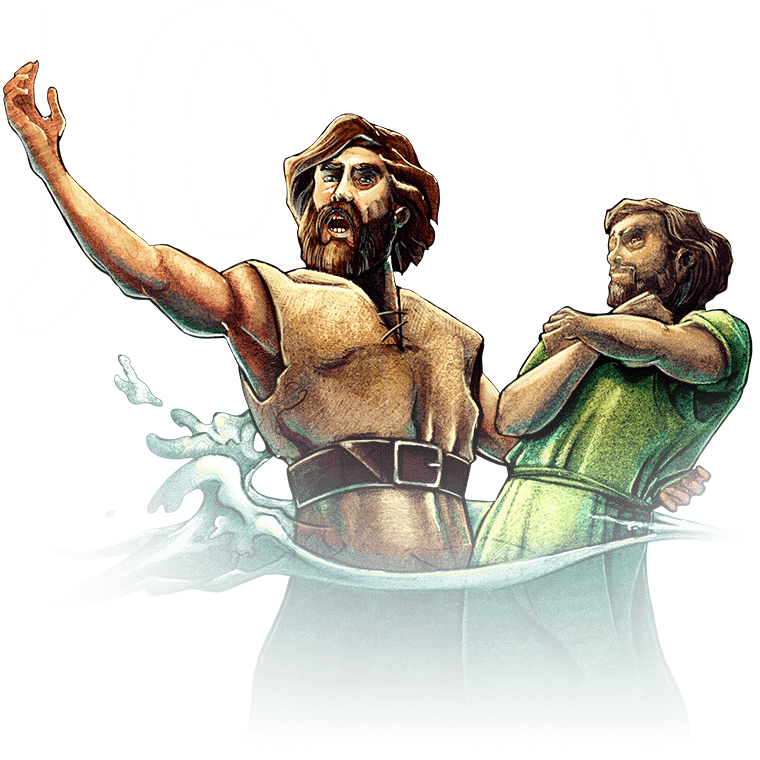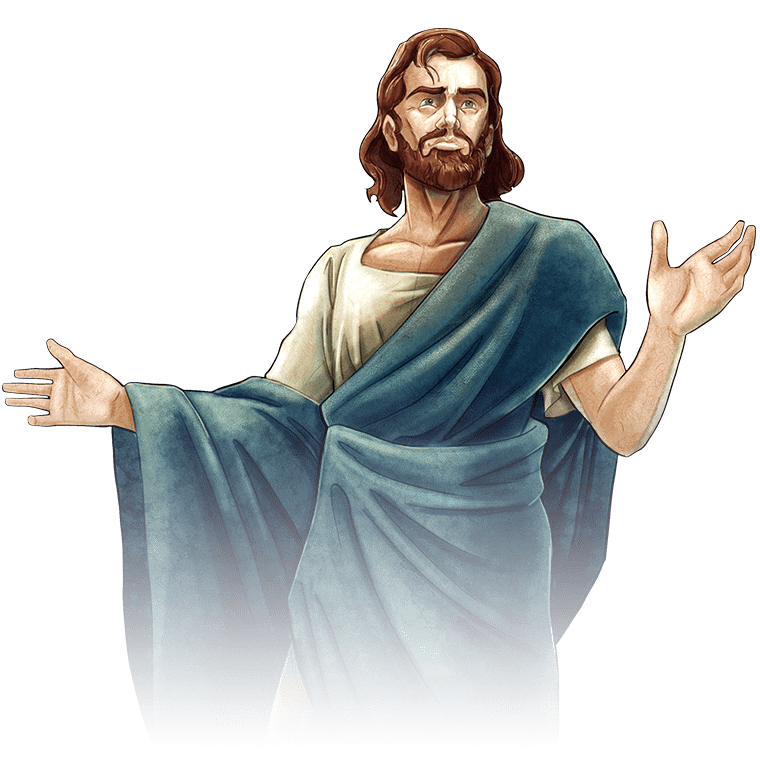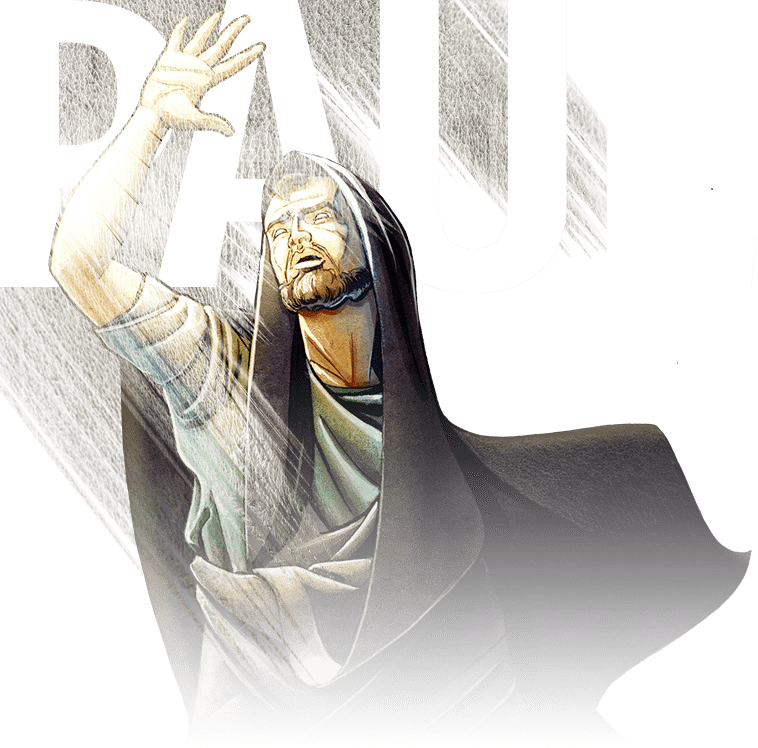In the beginning God created the heavens and the earth.
Adam & Eve
The Fall of Humanity
Unknown – 6500BC
Bible Reference: Genesis 1-4
Read More
- Adam was the first man and Eve was the first woman created by God on the sixth day of creation.
- God created Adam and Eve in His own image and likeness.
- Adam and Eve turned their backs on God and went their own way because Satan deceived them in the form of a serpent.
- After the fall, Adam and Eve felt the consequences of their bad decisions and shame.
As a result, mankind, which was created to walk with God forever, began to die and was disconnected from God. - With all the toil and pain, God gave humanity a promise that one day the serpent would be crushed and things would be made right.
- They had three sons: Cain, Abel, and Seth.
Cain & Abel
Broken Relationships
6500BC
(Earliest Culture Developed in Mesopotamia)
Bible Reference: Genesis 4
Read More
- Cain and Abel were two of the sons of Adam and Eve.
- Cain was a farmer and Abel was a shepherd.
- When sin separated humanity from God, people began to reach out to God through sacrifice.
- God favored Abel’s offerings over Cain’s because Abel brought his best before Him.
- Cain was extremely jealous of Abel and thought that God loved Abel more than him.
- God cautioned Cain not to give in to sin, but in the end, he took his brother Abel out and murdered him in a field.
- Cain was punished directly by God by being pushed away and forced to wander the earth.
- Cain took a wife and became the father of Enoch.
Noah
Worldwide Flood
5000BC
Bible Reference: Genesis 5-9
Read More
- Ten generations had passed since Adam and Eve turned away from the things of God.
- Noah was found to be good and righteous in the midst of all the depravity of humanity.
- When Noah was 500 years old, he fathered Shem, Ham, and Japheth. He was 600 years old when God flooded the earth.
- God revealed His plan to Noah to start over with creation and told him to build an ark so humanity and all animal life could be spared.
- Noah and his family followed God’s instructions to build the ark while those around them ridiculed them.
- God spared Noah and the animals, destroying every living thing to start over.
- God brought salvation to humanity through Noah and the ark.
Abraham
Trusting in God Regardless of the Circumstance
2166-1991BC
Bible Reference: Genesis 12-25
Read More
- God called Abraham out of the land of Haran along with his wife, Sarah.
- Abraham followed God and lived in tents, moving around the land of Israel.
- Abraham lied about his wife’s true identity twice to protect his own life.
- God promised Sarah and Abraham that they would have a child.
- Sarah got impatient with God’s plan and gave Hagar, her maidservant, to Abraham so they could have a family.
- Hagar gave Abraham a son and they named him Ishmael.
- When God visited with Abraham, He told him that he and Sarah would have a child. Sarah laughed while hiding inside the tent.
- The name Isaac means laughter.
- God called Abraham to sacrifice Isaac but stopped him right before he killed his son.
- God continued His blessing through Isaac.
Hagar & Ishmael
God’s Protection and Provision for Outsiders
2110-1943BC
Bible Reference: Genesis 16, 21
Read More
- Hagar served Abraham’s wife, Sarah.
- Sarah mistreated Hagar when she became pregnant, causing her to run away.
- God spoke through an angel and promised her that God heard her and would bless her son into a great nation also.
- Hagar gave birth to Abraham’s first son, Ishmael.
- Ishmael means “God hears.”
- After the birth of Isaac, Hagar and Ishmael were pushed away by Sarah, and while away, God reaffirmed His blessing.
- Hagar found a wife for Ishmael from Egypt.
- Ishmael lived in the desert and became an archer.
Isaac & Rebekah
Son of Promise Meets a Sea of Strife
2066- 1886BC
Bible Reference: Genesis 21-28, 35:27-29
Read More
- Isaac was the son of Abraham and Sarah. Rebekah was Abraham’s great-niece.
- Isaac was willing to sacrifice himself at the request of his aged father on Mt. Moriah until God intervened.
- Abraham’s servant found Rebekah miraculously.
- Isaac and Rebekah were the first arranged marriage mentioned in scripture.
- Rebekah was barren until Isaac prayed and God opened up her womb.
- Rebekah had twin boys: Jacob and Esau.
- Isaac lied about Rebekah’s true identity and called her his sister just as Abraham did.
- Isaac favored Esau and Rebekah favored Jacob.
- Rebekah tricked Isaac into blessing Jacob.
Jacob & Esau
Sibling Rivalry
2005- 1859BC
Bible Reference: Genesis 25-28, Genesis 32-33
Read More
- Jacob and Esau were twin sons of Isaac and Rebekah.
- Esau was born first, and his name means “hairy.”
- Jacob was born holding onto Esau’s heel, and his name means “grabber” or “trickster.”
- Isaac favored Esau, but Rebekah favored Jacob.
- Esau sold his birthright to Jacob for lentil stew when he was hungry.
- Esau took two Hittite wives for himself which created disruption for Rebekah and Isaac.
- Rebekah encouraged and helped Jacob steal Esau’s blessing.
- Esau was brokenhearted and enraged after being deceived, threatening to kill Jacob.
- Jacob received a blessing from Isaac to find a God-honoring wife in a distant land.
- Esau married one of Ishmael’s daughters to make things right with his parents.
- Jacob and Esau resolved their differences after over fourteen years and made peace.
Jacob with Leah & Rachel
Sister Wives
1929- 1859BC
Bible Reference: Genesis 28:1-35:28
Read More
- Upon fleeing Esau, Jacob journeyed to his mother’s family in Paddan Aram (Mesopotamia) to find a wife.
- On the journey, he dreamt that God’s covenant with Abraham would be fulfilled through him and that he would have many children.
- Jacob met Rachel when she was caring for her father Laban’s sheep.
- Rachel was a shepherdess and was very beautiful.
- Leah was Rachel’s older sister and was not as pretty.
- Jacob agreed to work for seven years so he could marry Rachel.
- Laban deceived Jacob on his wedding night and gave his oldest daughter Leah to Jacob instead of Rachel. Jacob discovered the next morning who he had really married.
- Jacob agreed to work seven more years to marry Rachel after completing his first wedding celebration.
- Leah was the mother of Reuben, Simeon, Levi, Judah, Issachar, Zebulun, and Dinah.
- Rachel was barren, so she gave Jacob her maidservant Bilhah in order to have children. Bilhah gave birth to Dan and Naphtali.
- Leah became jealous of her sister so she gave her maidservant Zilpah to Jacob and she had Gad and Asher.
- After years of being unable to have children, Rachel gave birth to Joseph.
- Upon leaving her father Laban, Rachel stole her family’s idols, hiding them from her father.
- Rachel then died giving birth to her second son, Benjamin.
- Jacob moved his family back to Hebron and made peace with his brother Esau.
Joseph
God’s Perfect Plan
1914- 1805BC
Bible Reference: Genesis 30:22-50:26
Read More
- Joseph was the first son of Jacob and Rachel, born while his father was serving Laban, and he was Jacob’s favored son.
- He was disliked by his brothers because he wore a special coat given to him by his father and because he often shared his dreams foreshadowing the future when he would rule over them.
- On a trip to check on his brothers, he was thrown in a cistern while they contemplated killing him, but he was instead sold into slavery.
- Merchants sold Joseph to the Egyptian Potiphar who was an officer of the Pharaoh. He was promoted to manage Potiphar’s affairs.
- He refused to have sex with Potiphar’s wife after multiple advances, and as a result, he ended up in prison when he was falsely accused by her.
- While in prison, he interpreted dreams for prisoners, including the king’s cupbearer. Two years later, Pharaoh had a dream, and the cupbearer suggested bringing Joseph in for interpretation.
- He interpreted Pharaoh’s dream as a foreshadowing of seven years of plenty for the land and seven years of drought, so Pharaoh made Joseph the second in his kingdom.
- During the years of drought, his family came from Israel to Egypt looking for food. Joseph chose to forgive his brothers for what they had done and saw it as a part of God’s plan to save both His people and the world.
- Before Jacob died, he and the rest of his family relocated to Egypt during the time of famine.
- God blessed the Jewish people, and they multiplied in the land of Egypt.
Moses
The Deliverer
1529- 1407BC
Bible Reference: Exodus, Leviticus, Numbers, Deuteronomy
Read More
- After Joseph, a new Pharaoh came along who enslaved the Israelites in Egypt, and when they grew numerous he ordered all male babies be thrown into the Nile river.
- Moses was born in secret to Amram and Jochebed from the tribe of Levi.
- When his parents could no longer hide him, they put Moses in a basket and pushed him into the Nile river, sending his sister to watch the baby along the banks.
- Pharaoh’s daughter heard Moses’s cries and pulled him out of the Nile. She asked Jochebed to nurse Moses and gave him his name which means “out of the water.”
- Moses was raised in the Pharaoh’s courts and was well educated.
- He struggled with his identity having been born a Hebrew but raised as an Egyptian.
- When he was 40, he killed an Egyptian when he saw him beating a Hebrew slave. He thought no one was looking but shortly after, everyone found out, and Moses fled to the desert.
- Moses lived for 40 years in the desert of Midian hiding from the Egyptian authorities.
- He lived with Jethro and took Jethro’s daughter Zipporah as his wife.
- When he was 80, God called Moses through a burning bush and told him he would lead the Israelites out of Egypt.
- Moses was reluctant, but God revealed His true nature as the one and only God and did miracles to show His power before Moses.
- Moses was slow of speech, so God allowed Aaron to be used to speak on his behalf.
- Moses appeared before Pharaoh and asked for the Jewish people’s release, but Pharaoh refused, so God punished the nation with plagues.
- God poured out ten plagues on the nation of Egypt. The tenth was the most severe when God took the life of every firstborn child.
- The only way people were spared from the last plague was by taking a lamb’s blood and putting it on the threshold of their home. This instituted the Passover.
- Moses led two million Israelites out of Egypt and was pursued by the Pharaoh’s army and cornered at the Red Sea.
- God used Moses supernaturally to part the Red Sea so the Israelites could cross on dry land. He then closed the sea on the Egyptian army.
- Moses went up on Mt. Sinai where he received the Ten Commandments from God.
- The Israelites saw that Moses had taken a long time meeting with God decided to create their own idols, turning away from God. When he returned, Moses destroyed the first stone tablets given by God and killed the idolaters.
- God renewed His covenant with the people and gave them another set of stone tablets.
- God gave Moses plans for the tabernacle and a process to worship Him, and He led the Israelites during their time in the wilderness.
- Moses talked and had a relationship with God unlike anyone else.
- He led the Israelites as they wandered through the wilderness for 40 years after being disobedient and cowering in fear when they believed false reports from the twelve spies.
- During their time in the wilderness, Moses wrote the first five books of the Bible known as the Pentateuch: Genesis, Exodus, Leviticus, Numbers, and Deuteronomy.
- Ultimately, Moses was held back from entering the Promised Land because, in his anger, he did not follow through with what God had asked him to do.
- Moses died at the age of 120 after giving his farewell address found in Deuteronomy. Though he was not allowed into the Promised Land, God allowed him to see it from Mt. Nebo.
Caleb
Courage to Stand
1480- 1390BC
Bible Reference: Numbers 13:1-14:45, Numbers 14:10-38, Joshua 14:1-15
Read More
- Caleb was appointed by Moses as one of the twelve spies to investigate the Promised Land.
- He was 40 years old when he was first mentioned as a spy.
- Along with Joshua, he was the only other spy who believed God could help them conquer the Promised Land.
- Though his generation of Israelites was cursed to die in the wilderness because of their unbelief, God allowed Caleb to enter the Promised Land because of his faith.
- At 85 years old, Caleb was still strong and courageous and led a military campaign against the most fortified places in Israel, which he conquered.
Joshua
God’s Military Leader
1475- 1365BC
Bible Reference: Exodus, Deuteronomy, Numbers, Joshua
Read More
- Joshua was first noted in the Bible as a commander of the Israelites in their battle against the Amalekites where God gave them victory.
- He attended the needs of Moses and journeyed with him and was the first to see him after he received the Ten Commandments.
- He was put in charge of the Tabernacle by Moses when it was moved after the Israelites worshiped the golden calf.
- He served as a spy along with the twelve that were sent out to investigate the Promised Land and along with Caleb and was the only one to believe that the Israelites could take the land.
- For their bravery and courage, Joshua and Caleb were spared God’s punishment and were allowed to enter the Promised Land.
- God spoke to Joshua and gave him direct encouragement to step into the task of leadership.
- He succeeded Moses as the leader of the Israelites and led them to conquer the land of Canaan.
- He led the people in the crossing of the Jordan River, which was at flood stage, and God parted it so they could cross on dry land.
- His military conquests included Jericho, Ai, Gibeon, and many others where God gave him victory.
- When the Israelites sinned and were defeated, Joshua eliminated the offenders and got rid of the sinful spirit of the nation.
- Joshua set up the Tabernacle in Shiloh where he lived and continued to administer the affairs of the nation of Israel.
- After giving two final addresses acknowledging how God had fulfilled His promises and reminding the people of their covenant to follow the law that God had set up, he died at the age of 110.
Tabernacle
The First Dwelling of God
1446 – 960BC
Bible Reference: Exodus 25-28
Read More
- Moses was directed by God to build the tabernacle which was a tent that housed the presence of God.
- The tabernacle was designed to be moved as the Israelites wandered through the wilderness until they entered into the Promised Land.
- God led the Israelites by showing a cloud over the tabernacle by day and a fire by night. When the cloud or fire moved, the people knew it was time to depart.
- The tabernacle was separated into three areas: The Outer Court, the Holy Place and the Holy of Holies.
- The Outer Court was where the priests would offer burnt and wave offerings before God. It was where the bronze altar and the basin were located.
- The Holy Place was where the Table of the Bread of the Presence, the Golden Lampstand, and the Altar of Incense were located.
- The Holy Place was right next to the Holy of Holies, and it was covered with a roof made of a goat hair canvas. The two rooms were separated by a veil.
- The Holy of Holies housed the Ark of the Covenant which was a box covered in gold holding the Ten Commandments that God had written in stone.
- The Ark of the Covenant was adorned with two angels that faced each other with outstretched wings over the cover known as the mercy seat.
- God would appear and talk to Moses or the Priest above the mercy seat to guide and direct the people.
- The tabernacle was used by the Jewish people until they entered into the Promised Land. It was moved to Shiloh until 1050 BC when the Philistines took possession of the Ark.
- Samuel restored worship and set up part of the tabernacle in Mizpah.
- David ultimately had the tent moved to Mt. Zion as he planned out and awaited the construction of the temple.
Ehud
The Left-Handed Judge
1314- 1215BC
Bible Reference: Judges 3:12-30
Read More
- Ehud was the second judge of Israel, the son of Gera who was a Benjamite.
- He emerged because the Israelites fell back into idolatry and God punished them by allowing Eglon the king of Moab to invade the land. Eglon put them under heavy taxes for eighteen years.
- When the Israelites cried out for deliverance, God raised up Ehud who was left-handed and cunning to free them from their oppression.
- With a dagger strapped to his right leg, he went to pay tribute to Eglon in Gilgal and shared that he had a secret message for him.
- Eglon dismissed his servants to hear the message in his upper room, and Ehud shoved the dagger into the king’s belly.
- Ehud escaped and rallied the people to defeat 10,000 of the best Moabite men.
- He gave peace and rest to the land for 80 years.
Deborah & Barak
The Judge and the General
1215- 1155BC
Bible Reference: Judges 4-5
Read More
- After Ehud, Israel did evil in the eyes of God, so they were given over to Jabin king of Canaan who ruled from Hazor for twenty years.
- Deborah served as a judge of Israel between Ramah and Beth in the hill country of Ephraim during this time.
- Deborah was a prophetess, and she sent an inspired message to Barak who was called to gather an army of Israelites together to attack Jabin.
- Barak assembled 10,000 men on the condition that Deborah accompanied him.
- Deborah accompanied him but shared that the prize for the victory would be given to a woman (Jael).
- God used Barak and the Israelites to defeat the hardened chariots and armies of Jabin led by Sisera.
- This victory gave peace to the land of Israel for forty years.
- Deborah composed a song commemorating their victory, and it stands as one of the earliest in Hebrew poetry.
Jael
The Tent Peg
1215- 1155BC
Bible Reference: Judges 4-5
Read More
- After twenty years of being ruled by Jabin of Canaan, God brought deliverance through an army led by Deborah and Barak.
- Deborah had prophesied that a woman would be given the prize of the victory.
- The general Sisera, who led the armies of Jabin, fled during the battle and came to rest and hide in Jael’s tent. Her people had a good relationship with his king.
- Sisera was given shelter and comfort in the tent, and he fell fast asleep.
- Jael drove a tent peg through Sisera’s temple while he was sleeping, killing him instantly.
- Jael showed Barak Sisera who was dead and on that day, God gave them the victory through a woman.
- This event was the catalyst that brought about the destruction of the Canaanite king Jabin.
- Jael’s action was commemorated in song.
Gideon
The Unlikely Judge
1155- 1108BC
Bible Reference: Judges 6-8
Read More
- When Israel once again turned back to idolatry, they were invaded and conquered by the Midianites.
- For seven years, the Midianites oppressed and held the Israelites in a state of unseen poverty to the point that they cried out to the Lord for help.
- God raised up and called Gideon who was hiding and threshing wheat in a winepress so he wouldn’t be discovered and taken by the Midianites.
- After being called, Gideon obeyed God by making sacrifices and tearing down an altar to Baal that belonged to his father.
- When the Midianites invaded again, he assembled an army, and before going to battle, he had God confirm their victory with the sign of a fleece.
- Assured of the victory, Gideon assembled 32,000 men to attack the armies of Midian numbering 135,000.
- To show His power, God had Gideon cut back his forces to just 300 men and through a clever strategy, he tricked the Midianites into thinking they were surrounded.
- In fear, the Midianites turned on one another, and their army was wiped out by God.
- Many of the Israelites wanted to make Gideon their king, but he resisted this temptation, recognizing the leadership of God over the people.
- One of the spoils of the battles was a pair of golden earrings that weighed fifty pounds, which he crafted into a golden ephod. After his death, it was worshipped as an idol, leading to Israel’s demise.
Samson
The Strong Judge
1082- 1065BC
Bible Reference: Judges 13- 16
Read More
- Samson served as a judge for twenty years and delivered the Israelites who were suffering at the hands of the Philistines for the previous forty years.
- His birth was foretold to his parents Manoah and Zorah of the tribe of Dan by an angel that said he would be set apart as a Nazirite, which was a higher calling to abstain from sin.
- His first act in the Bible was to violate his vow by marrying a Philistine woman.
- He showed his exceptional strength when he killed a lion with his bare hands, but later, he violated his Nazarite vow again by touching the dead carcass of the lion.
- Despite turning away from his vow, God fulfilled his purpose of deliverance, and he killed thirty Philistines in Ashkelon, burning their fields and orchards, and avenging his wife and father-in-law.
- To satisfy the angry Philistines, the Jewish people tied Samson up to turn him over to the Philistines. When he was delivered, he split the ropes and slaughtered 1,000 of them.
- Samson’s downfall escalated when he fell in love with Delilah, a Philistine woman who eventually won his trust and got him to share the secret of his strength.
- Delilah betrayed Samson, cutting off his hair and relieving him of God’s Spirit and strength. The Philistines then took him as their prisoner and cut out his eyes.
- In one final act of strength, while Samson was chained to the pillars of a temple and the Philistines mocked him, he asked God for strength, and he knocked down the temple, killing 3,000 Philistines and himself.
Samuel
The Last Judge of Israel
1060- 1020BC
Bible Reference: 1 Samuel 1:1-25:1
Read More
- Samuel was the son of Elkanah a Levite and Hannah.
- Hannah was barren, but prayed to have a child and vowed to give the child to God if she was able to conceive; Samuel was the answer to her prayers.
- He was dedicated to the Lord and raised in the temple after he was weaned.
- He was a prophet and the last Judge of Israel.
- He led the Israelites to repent of their sins, and God gave the nation victory over the Philistines at Mizpah.
- He anointed the first King of Israel, Saul.
- Samuel was an advisor to King Saul and not only provided him with good counsel, but he also rebuked Saul when he disobeyed God and was rejected as the king.
- He anointed David as the second King of Israel.
- His death was mourned by the Israelites.
King Saul
Israel’s First King (A Life of Contradiction)
1051- 1011BC
Bible Reference: 1 Samuel 8:1-31:13
Read More
- Saul was from the small tribe of Benjamin.
- On the outside, Saul was tall, strong, and stood out among others.
- He was anointed by Samuel as the first king of Israel.
- He was elected by the casting of lots at Mizpah only to be found hiding in the luggage, showing his initial resistance to being king.
- The Spirit of the Lord came upon Saul and used him to rally the people in a decisive victory of the Ammonites.
- After the victory over the Ammonites, Saul established himself as king.
- His reign was plagued early on by his impatience and rash mood swings.
- God rejected Saul as the king and chose David instead because Saul failed to destroy the Amalekites and made light of his sin when Samuel found out.
- His jealousy of David and his partial obedience led to the downfall of his kingdom.
- Saul was killed in battle along with his son Jonathan on Mt. Gilboa.
David
A Man After God’s Own Heart
1011- 971BC
Bible Reference: 1 Samuel 16:1-31:13, 2 Samuel, 1 Kings 1-2, 1 Chronicles 10:1-29:30
Read More
- David was born in Bethlehem, the youngest of eight children.
- He was a skilled shepherd known for slaying a lion and a bear.
- He was anointed King of Israel by Samuel.
- He was a talented musician known for playing the lyre for King Saul to refresh his spirit.
- He killed the Philistine Goliath and won the admiration of the people and Saul’s son Jonathan.
- In jealousy, Saul vowed to kill David, and he lived as a fugitive.
- He established Jerusalem as Israel’s capital city and conquered their neighboring enemies.
- He organized the kingdom through his gifts of strategy, administration, diplomacy, and military achievements.
- He made Jerusalem a religious center by moving the Ark of the Covenant to the temple mount.
- He wrote and helped to develop sacred music known as Psalms that cultivated a spirit of worship.
- He resolved to build a temple to honor the Lord.
- He committed adultery with Bathsheba and tried to cover it up by having her husband Uriah killed after she became pregnant.
- He was judged for his sins and paid a heavy price.
- He died at 70 years old.
Solomon’s Temple
The First Temple
959- 587BC
Bible Reference: 1 Kings 5-10, Ezekiel 10
Read More
- King David was given a vision and a heart to build a temple to honor God.
- After moving the Ark of the Covenant and the Tabernacle to Mt. Zion, he gathered materials and items for his son and successor Solomon to complete the task.
- Construction of the temple began in the four years of the reign of King Solomon and the project was completed in seven years, placing its completion in 959 BC.
- Solomon’s Temple was built with the finest materials and followed the same general design as the tabernacle, but instead of being portable, this building was designed to reflect the greatness of God.
- The presence of God and His glory came upon and stayed within the temple after the Ark of the Covenant was placed in the Holy of Holies.
- The Prophet Ezekiel saw the glory of the Lord depart from the temple and never return when the city of Jerusalem fell to the Babylonians in 587 BC.
Solomon
The Half-Hearted King
971- 931BC
Bible Reference: 1 Kings 1-11; 2 Chronicles 1-9
Read More
- Solomon was the second son of King David and Bathsheba.
- When God asked Solomon in a dream, “Ask for whatever you want Me to give you?” he requested wisdom to lead God’s people. He was given wisdom, prosperity, and a long life.
- His wisdom was renowned throughout the world.
- He established the largest kingdom in Israel historically.
- He built a thriving trade culture and made Israel prosperous through taxation and diplomacy.
- He created a modern army for Israel with horses, chariots, and established a market for iron working along with precious metals.
- He constructed and dedicated the first temple built to honor the one true God.
- He made peace with others through a foreign policy that was built on royal marriages. Solomon had 700 wives and 300 concubines.
- Foreign wives ultimately turned Solomon’s heart away from God to idolatry.
- Solomon died disillusioned and hard-hearted and he passed his kingdom on to his son Rehoboam.
Ahijah
The Bold Prophet
940- 910BC
Bible Reference: 1 Kings 11:29-40, 14:1-18, 2 Chronicles 9:29
Read More
- Ahijah was a prophet of God that served in Shiloh.
- He prophesied that the kingdom of Israel would be torn in two following Solomon’s reign.
- As a result of his prophecy, Jeroboam was pursued and fled Israel because of the threat he posed to Solomon’s dynasty.
- The wife of Jeroboam disguised herself and went to visit the prophet to inquire about her son who was sick.
- He prophesied that Jeroboam’s son would die and that his kingdom would end because of the idolatrous practices that Jeroboam had set up.
- His son Baasha made sure his prophecies came true by killing off the rest of those in line for the throne of Jeroboam. He then set himself up as king.
Rehoboam (Judah)
The Divided Kingdom
931- 913BC
Bible Reference: 1 Kings 12:1-24, 1 Kings 14:21-31; 2 Chronicles 10-12
Read More
- Rehoboam was the son of Solomon and was chosen as the next king of Israel.
- He had the opportunity to reduce the burden of taxes on the people but instead chose to increase them.
- The northern tribes split from Judah and Benjamin under his rule, creating two separate kingdoms: the Northern Kingdom of ten tribes and the Southern Kingdom of Judah and Benjamin.
- Upon the revolt of the people, he marched an army against Jeroboam, but after being warned to stop by the prophet Shemaiah, he went home as God ordered.
- In the fifteenth year of his reign, the country was invaded by the Egyptians.
- He purchased peace with the Egyptians by giving them the temple treasures.
- He ruled for seventeen years and died at 58, passing his throne to Abijah the son of his favorite wife, Maacah.
Jeroboam (Israel)
A Rebel’s Cause
931- 910BC
Bible Reference: 1 Kings 11:26-14:20
Read More
- Jeroboam was noticed by Solomon when he was constructing the fortifications of Millo underneath the citadel of Zion.
- He was promoted by Solomon to the rank of superintendent over the taxes for his tribe Ephraim.
- The prophet Ahijah prophesied that he would rule ten of the twelve tribes of Israel and that God would establish his throne if he followed God.
- Fled to Egypt after Solomon suspected that he was conspiring against him.
- Upon Solomon’s death, the northern tribes of Israel made Jeroboam their king and rejected Rehoboam because of his heavy taxation.
- Jeroboam didn’t follow and obey the standards that God set up and turned the Northern Kingdom to idolatry.
- They set up a separate system of worship including the pagan calf worship in both Dan and Bethel.
- His rebellion brought an end to the life of his son as prophesied by Abijah.
- Jeroboam died two years after his son after reigning for twenty-two years.
Jehu
Prophet to the Kings
879- 850BC
Bible Reference: 1 Kings 16:1-7; 2 Chronicles 19:1-20:34
Read More
- Jehu served as a prophet under the reign of both the Northern and Southern Kingdoms in Israel.
- He prophesied that Baasha the king of the northern tribes of Israel would be destroyed because he continued in the ways of Jeroboam.
- He also prophesied against Jehoshaphat the king of Judah for aligning himself with Ahab, the wicked king of Israel.
Ahab & Jezebel
The Evil King and Queen
874- 853BC
Bible Reference: 1 Kings 16:29-22:40; 2 Chronicles 18
Read More
- They were married in 871 BC.
- Ahab ruled over the Northern Kingdom of Israel, and Jezebel was the daughter of Ethbaal, king of Tyre and Sidon.
- Jezebel personally supported 450 prophets of Baal and 400 prophets of Astarte.
- Jezebel put to death and hunted the prophets of God.
- They accepted Elijah’s challenge to a showdown on Mt. Carmel between their prophets and Elijah in order to prove who the one true God was.
- Jezebel vowed to kill Elijah after he, along with the people, slaughtered her prophets.
- Ahab, under the influence of Jezebel, took the land of Naboth on false accusations, and because of this, Elijah prophesied an end to their kingdom.
- Ahab died in battle at Ramoth-Gilead after a stray arrow mortally wounded him in his chariot.
- Jezebel exerted influence through her son Jehoram and her daughter Athaliah, who went on to be the Queen of Judah, even after the death of Ahab.
- Jezebel died after being thrown out of the window by her own servants when Jehu, the new king, rode into the capital.
- Just as Elijah had prophesied, Jezebel’s body was eaten by dogs who left only her head and hands behind.
Elijah
The Prophet of Fire
874- 853BC
Bible Reference: 1 Kings 17:1-22:40; 2 Kings 1:1-2:25
Read More
- Elijah was a prophet of God, and his name means “My God is Yahweh.”
- He warned King Ahab that a drought was coming as a sign of God’s judgment on Ahab and the people due to their idolatry.
- God sustained Elijah supernaturally for seven years through ravens and a brook and then through a widow at Zarephath.
- After seven years, he appeared again before Ahab and issued a challenge between the one true God and all of their idols.
- During a showdown on Mt. Carmel, he prayed and called down fire from heaven that consumed the sacrifice he had placed on an altar.
- He put the prophets of Baal to death after their crushing defeat on Mt. Carmel.
- He prayed for rain to come after seven years of drought and God answered with refreshing waters.
- He fled for his life from Queen Jezebel and had a powerful encounter with God at the mouth of a cave.
- He prophesied against Ahab and Jezebel, sharing of their impending deaths.
- He prophesied that Ahaziah the king of Israel would die after he sent messengers to consult the gods of the Philistines.
- He ascended into heaven in a chariot of fire leaving Elisha to carry on his ministry as a prophet.
Michaiah
The Only Brave Prophet
874- 853BC
Bible Reference: 1 Kings 22:1-28; 2 Chronicles 18:1-19:3
Read More
- Michaiah served as a prophet in Israel.
- During the final year of King Ahab, he prophesied his death and defeat at Ramoth Gilead.
- When all the other prophets told King Ahab and Jehoshaphat that they would win the battle, he was the only one to share the truth.
- He was struck for speaking out and was imprisoned.
Elisha
The Prophet of Miracles
856- 846BC
Bible Reference: 1 Kings 19:15-21; 2 Kings 2:1-9:10, 13:14-21
Read More
- Elisha was called by Elijah to be a prophet, and he left his family and followed Elijah as his attendant.
- He was present when Elijah ascended into heaven, and he asked for a double portion of his spirit, meaning he would be the heir of the prophetic office.
- He did fourteen miracles and brought truth and healing to the people.
- When Elisha was taunted and teased for being bald by young boys he cursed them in the name of the Lord this caused two bears to come out of the woods to maul 42 of the group of boys.
- He saw God’s miraculous provision for those who attended to his needs.
- He had the ability to prophesy for the kings. He gave them military insight and also was able to see God’s armies miraculously aid His people.
- He predicted that Hazael would become king of the Arameans and that they would harass the Northern Kingdom of Israel.
- He anointed Jehu the king of the Northern Kingdom of Israel, permanently cutting off the lines of Ahab and Jezebel from Israel.
Obadiah
The Obscure Prophet
841BC
Bible Reference: Obadiah 1
Read More
- Obadiah served as a prophet of God.
- There were twelve biblical characters known as “Obadiah” which means “servant of the Lord.”
- Not much is known about the Obadiah who wrote this book, which is the smallest in the Old Testament.
- It is thought that Obadiah is one of the earliest minor prophets, used in connection with the prophecies of Joel and Jeremiah.
- His prophecy was against Edom, the descendants of Esau, for being prideful and violent.
- Ultimately he prophesied that Edom would be destroyed with no survivors, which was fulfilled as there are no remaining Edomites.
Joel
The Prophet and Priest
835- 796BC
Bible Reference: Joel 1-3
Read More
- Joel was a prophet of God in the Southern Kingdom of Israel.
- His frequent messages to those who were priests seem to point to the fact that he himself was a priest.
- His prophecy was accompanied by a severe drought and an invasion of locusts.
- His purpose was to call the nation to repent in light of the coming judgment of God known as the “Day of the Lord” (he was the first of the minor prophets to use this phrase).
- His prophecy was not only meant for his generation but was also given as a reference to the restoration of Israel and Armageddon when Jesus Christ would return to earth.
Amos
The Shepherd Prophet
786- 746BC
Bible Reference: Amos 1-9
Read More
- Though he was a shepherd with no formal schooling, God called Amos as a prophet.
- He served as a prophet in the Northern Kingdom of Israel.
- He served during a great time of prosperity, wealth, and corruption.
- God sent this shepherd prophet in to set the people of both Israel and Judah straight.
- Amos’s visions included a glimpse of a restoration of the Jewish nation through the Messiah’s return.
- He was charged with conspiracy against Jeroboam and threatened by the high priest Amaziah.
Jonah
Runaway Prophet
782- 753BC
Bible Reference: 2 Kings 14:25; Jonah 1-4; Matthew 12:39
Read More
- Jonah flourished as a prophet under the reign of Jeroboam II.
- He predicted the successful restoration of the boundaries of the Northern Kingdom.
- He was called by God to share a message of repentance to the Ninevites, but after being called, he ran away because of his hatred of the Ninevites.
- After fleeing from God on a boat, God sent a storm and Jonah was thrown overboard and swallowed by a great fish. He repented of his sin and then spit out of the fish.
- Jonah went to Nineveh and shared the message that they would be destroyed if they didn’t repent.
- The Ninevites turned away from their sin and got right with God.
- Jonah still wanted the Ninevites to be destroyed, so he sat on a hill overlooking the city waiting for their destruction.
- God corrected Jonah for his anger and hatred for the people.
- Jesus saw Jonah not as a figure in literature, but as an actual person.
Hosea
Relentless Love
782- 753BC
Bible Reference: Hosea 1-14
Read More
- Hosea served as a prophet to the Northern Kingdom of Israel.
- He prophesied during a time in which the people materially prospered but were spiritually bankrupt under Jeroboam II.
- Hosea was instructed by God to marry the prostitute Gomer, and he used this relationship to describe the unfaithfulness of Israel.
- His book contains a detailed account of his life and marriage to Gomer and the prophecies against the Northern Kingdom.
- God’s relentless love for His people was shown through the prophecies of Hosea.
- Hosea gave the people a message of restoration and hope if they turned back to God.
- Though it seemed far off, judgment came against the Northern Kingdom when their capital fell in 722 BC to the Assyrians.
Micah
The People’s Prophet
750- 687BC
Bible Reference: Micah 1-7
Read More
- Micah served as a prophet during the reigns of Jotham, Ahaz, and Hezekiah in the Southern Kingdom of Israel.
- He preached mainly to the common people of Judah.
- He called for the people to remember the importance of social justice.
- He prophesied that the Messiah would be born in Bethlehem.
- He shared a vision for God establishing peace during the millennial reign of Christ.
Isaiah
The Great Prophet
740- 680BC
Bible Reference: Isaiah, 2 Kings 19-21, 2 Chronicles 26:22, 32:32, Hebrews 11:37
Read More
- Isaiah served as a prophet and was born into an influential, upper-class family which gave him the opportunity to connect with royalty and to speak into the foreign affairs of the nation.
- He prophesied during the kingships of Uzziah, Jotham, Ahaz and Hezekiah in the Southern Kingdom of Israel.
- He is thought to have lived in Jerusalem, and he married a prophetess.
- He held a high rank in Jerusalem as the head of the prophetic order similar to Elisha, and his rank increased as his prophecies were fulfilled.
- He saw the coming invasions of the Babylonians and the exile of the Jewish people, the victories of Cyrus, and the eventual deliverance of the Israelites.
- Isaiah authored two biographies of King Uzziah and King Hezekiah along with his major prophecy, which bears his name.
- He is regarded as the greatest of all Hebrew writers as he carefully described the office of the Messiah and called Israel out of idolatry.
- Isaiah’s prophecies were often quoted in the New Testament and heavily relied upon in confirmation of Jesus as the Messiah.
- Tradition holds that he was martyred during the reign of Manasseh by being sawed in two inside a hollow log.
Hezekiah
Godly Reformer
736- 687BC
Bible Reference: 2 Kings 18:1-20:21; 2 Chronicles 29:1-32:33; Isaiah 36-39
Read More
- Hezekiah was the twelfth sovereign king of Judah, the Southern Kingdom of Israel.
- He was the son of Ahaz and Abijah.
- He reformed the Southern Kingdom, turning them back to God through cleaning out the temple, reinstituting the Passover, and getting rid of the idolatrous practices.
- He built up the defenses and the city of Jerusalem, establishing an aqueduct for the city and expanding the walls.
- He stood against the Assyrian invasion after they conquered the Northern Kingdom of Israel.
- He was surrounded by the Assyrian King Sennacherib in Jerusalem until God delivered him from an illness and put 180,000 Assyrian soldiers to death.
- In the end, he was rebuked for showing the Babylonians the treasures of Israel, and it was prophesied by Isaiah that Jerusalem would fall.
Assyrians
The Advance of Nineveh
725- 612BC
Bible Reference: 2 Kings 15-20, Isaiah 10, Jonah 1-4, Nahum 2:1-3:19, Zephaniah 2:11-13
Read More
- The Assyrian nation came out of the early Mesopotamians that settled along the Tigris river.
- They emerged out of the earlier Babylonians, adopting the same gods and living a polytheistic life.
- Their history was well preserved through the use of clay tablets that detail their daily lives, military achievements, and zeal in worshipping many gods.
- They were known for their cruelty and their bloody conflicts.
- The Assyrian Emperors ruled from their capital in Nineveh, which is close to the modern city of Mosul, Iraq.
- They emerged as a world leader from 725-635 BC conquering Egypt, Northern Israel, and Babylon.
- They conquered the Northern Kingdom of Israel in 722 BC and intermarried with the Jews, creating a race of Samaritans.
- They laid siege to the Southern Kingdom of Israel and surrounded Hezekiah in Jerusalem under the reign of Sennacherib until God intervened and rescued His people.
- Their capital city of Nineveh fell as was prophesied by Nahum in 612 BC to the combined military forces of the Medes, Babylonians, and Scythians.
Nahum
Judgment for Nineveh
658- 615BC
Bible Reference: Nahum 1
Read More
- Nahum was an accomplished poet and prophet.
- He was from the city of Elkosh, which is possibly Capernaum.
- He spoke concerning the destruction of Nineveh and the Assyrian Empire.
- Nineveh was destroyed in 612 BC.
Zephaniah
The Noble Prophet
640- 608BC
Bible Reference: Zephaniah
Read More
- Zephaniah served as a prophet to the Southern Kingdom of Israel and was of noble birth.
- He ministered during the reign of the evil kings Manasseh and Amon and called the people to repentance.
- Repentance came during the reign of Josiah.
- The theme of his prophecy was that God’s judgment was coming for the Southern Kingdom of Israel and to their neighbors.
- Zephaniah built upon the idea of the “Day of the Lord” which introduced by Joel, the minor prophet.
- He gave a picture of future blessings for the Gentiles and the Jews after the pain of judgment.
Jeremiah
The Weeping Prophet
626- 587BC
Bible Reference: Jeremiah & Lamentations
Read More
- Jeremiah began his ministry as a prophet at about the age of twenty under Josiah, who was a good king in the Southern Kingdom of Israel.
- For forty years he faithfully proclaimed God’s judgment on the sins of the people of Judah even when facing opposition, beatings, and imprisonment.
- His prophecies are detailed in the book Jeremiah and his sadness over the destruction of Jerusalem is found in the book Lamentations.
- After the reign of Josiah, he was not allowed in the temple and was hunted down by the Jewish authorities because they didn’t like his prophecies.
- He was an eyewitness to see the Egyptians depose King Jehoahaz, replacing him with the puppet King Jehoiakim who reigned over the Southern Kingdom of Israel in 609 BC.
- He saw Nebuchadnezzar march into Israel after defeating the Egyptians at the Battle of Carchemish (605 BC). They took prisoners back to Babylon and Jehoiakim switched sides and became a puppet king for the Babylonians.
- After Jehoiakim died in 597 BC, the Babylonians replaced him with Zedekiah who bent to the wishes of the Jewish nobles and had Jeremiah imprisoned.
- In 586 BC, the Babylonians took Jerusalem by force and released Jeremiah, giving him the choice of returning with them to Babylon or remaining in Jerusalem.
- Jeremiah remained in Jerusalem but was soon abducted and taken to Egypt by Jews who fled rather than facing Nebuchadnezzar.
- In Egypt, Jeremiah prophesied for a few more years and before he died.
- Tradition holds that he was stoned and is thought to be remembered in Hebrews 11:37.
Ezekiel
The Suffering Prophet
620- 550BC
Bible Reference: Ezekiel
Read More
- Ezekiel was a prophet of God from a priestly family.
- He spent his early years in Jerusalem until he was taken captive to Babylon by Nebuchadnezzar in 597 BC.
- He settled in his own house in a village near Nippur which was located along the Kebar River in Babylonia.
- He prophesied for twenty-two years to those who were in Babylon.
- His wife died unexpectedly in the year 587 by a sudden stroke.
- He was well respected in the community, and the elders of Israel consulted with him on many different occasions.
- Ezekiel’s ministry was to keep the people’s sins that brought them into exile in front them so they could be assured the future blessings if they kept their covenant with God.
- He served in the early years of Daniel and alongside the ministry of Jeremiah who remained with the Jews in Palestine.
- He was one of the four major prophets and his book shares the judgment that was to come to Israel and the future restoration.
- He was distinguished as being firm and inflexible when it came to character and the observance of the Jewish law.
- He was willing to endure any hardship or misery if it could serve as a warning or lesson to the people whom he loved.
Habakkuk
The Singing Prophet
608- 598BC
Bible Reference: Habakkuk, Psalm 3:19
Read More
- Habakkuk was from the tribe of Levi.
- He had some part in liturgical singing in the temple.
- Upon seeing the impending invasion of the Babylonians, Habakkuk had two questions for God: Why did God allow evil to go unpunished? Why would God allow a more evil nation to punish the Jews?
- God instructed Habakkuk to write his prophecy down on tablets so it could be announced publicly.
- God met Habakkuk in the midst of his questions and spoke to him, and he responded with a psalm of praise.
Nebuchadnezzar
Instrument of Exile
605- 562BC
Bible Reference: Kings 20:12-19, 24:1-16, Jeremiah 26:2-12, Daniel, Ezekiel
Read More
- The Babylonians were one of the first cultures that emerged in Mesopotamia that organized, built, educated, and provided written records.
- The Babylonians advanced as a civilization and helped to overthrow the Assyrians in 612 BC.
- Nebuchadnezzar, the son of Nabopolassar, emerged as the king and led the Babylonians to defeat King Neco of Egypt in 605 BC. This solidified Babylonia as a world power.
- Nebuchadnezzar invaded Israel and conquered the land in 597 BC by installing a puppet king and taking the best plunder and the brightest people back with him to Babylon.
- In 587 BC, the Babylonians laid siege to Jerusalem and completely destroyed the city and the temple.
- Nebuchadnezzar advanced in wealth and did magnificent construction projects that were unrivaled anywhere else in history.
- The captives that were taken to Babylon were forced to abandon their own culture and gods so they could learn how to be Babylonian.
- In the book of Daniel, Nebuchadnezzar came to a place where he praised the one true God.
- When Nebuchadnezzar died in 562 BC, the Babylonian empire also lost its prominence.
- King Belshazzar was the last king of the Babylonians before they were conquered by the Persians in 539 BC.
- Babylonian astronomers, knowing the prophecies from the Jewish people about the Messiah, sent wise men to find Jesus.
- Babylon is used throughout the Bible as a symbol of evil.
Babylonians
An Advance in Civilization
2500- 4BC
Bible Reference: Genesis 11:9, 2 Kings 20:12-19, 24:1-16, Jeremiah 26:2-12, Daniel, Ezekiel, Matthew 2, 1 Peter 5:13, Revelation 17:5
Read More
- The Babylonians were one of the first cultures that emerged in Mesopotamia that organized, built, educated, and provided written records.
- Abraham’s family lived in and came out of the area of the Babylonians through the ancient cities of Ur and Haran, both located close to the Euphrates River.
- The Babylonians advanced as a civilization and helped to overthrow the Assyrians in 612 BC.
- They became a world power under the leadership of King Nebuchadnezzar.
- In 587 BC, the Babylonians laid siege to Jerusalem and completely destroyed the city and the temple.
- King Belshazzar was the last king of the Babylonians before they were conquered by the Persians in 539 BC.
- When Alexander the Great conquered the known world, he intended to set up a new capital in the city of Babylon because of its access to the kingdom. He eventually died in Babylon in 323 BC.
- Babylonian astronomers, knowing the prophecies from the Jewish people about the Messiah, sent wise men to find Jesus.
- Babylon is used throughout the Bible as a symbol of evil.
Shadrach, Meshach, Abednego
The Fiery Furnace
605- 537BC
Bible Reference: Daniel 1-3, Hebrews 11:34
Read More
- Shadrach, Meshach, and Abednego were taken captive as youths from Israel to Babylon.
- Their names were changed from their Hebrew names Hananiah, Mishael and Azariah when they entered into Babylon.
- They were of superior intellect and were taught the language and culture of the Babylonians, and they were trained in the college of magicians.
- They were forced to violate their covenant with God by eating forbidden food from the king’s table, but they refused, choosing only to eat vegetables along with Daniel. As a result, they grew in stature and were promoted.
- They stood with Daniel when challenged to interpret a forgotten dream from Nebuchadnezzar and prayed for God’s revelation. As a result of the interpretation, they achieved a higher civic office.
- They were envied by the other magicians for their advancement, and this led to others scheming against them.
- They refused to worship a golden image that was set up on the plains of Dura in Babylon knowing full well the penalty of being thrown into a fiery furnace.
- When thrown into the fiery furnace, their faith remained strong and God miraculously kept them alive without even a hint of smoke on their clothing.
- Nebuchadnezzar saw four men standing in the fire, and the fourth being was divine in nature, confirming God was with the three and that their God was the one and only true God.
- As a result of their commitment, God’s name was lifted up in the Babylonian nation, and they were promoted to higher positions.
Daniel
True Faith
605- 537BC
Bible Reference: Daniel, Hebrews 11:33
Read More
- Daniel was taken captive as a youth from Israel to Babylon and given the Babylonian name Belteshazzar.
- In an attempt to retrain and to indoctrinate the best of the Jewish people, he was taught the language and culture of the Babylonians, trained in the college of magicians, and given food from the king’s table.
- Daniel, along with his friends, chose to stay true to their God, refusing the attempts of the Babylonians through only eating vegetables, and as a result, they grew in stature and were promoted.
- He surpassed the wisdom and the stature of the Babylonian magicians and was able to give Nebuchadnezzar a proper interpretation when no one else could, and he and his friends achieved a higher civic office.
- He continued to interpret dreams for Nebuchadnezzar, including a vision of the king’s humiliation and restoration.
- After Nebuchadnezzar, Daniel occupied a lesser position and moved into obscurity, seeing visions of future events and kingdoms that were troubling.
- The Babylonians took sacred cups from the Jewish temple and used them as dishware, and God supernaturally wrote a phrase on a wall that Daniel was called out of retirement by King Belshazzar to interpret.
- His interpretation was that the Babylonians would be defeated by the Medes and the Persians which came true the same night.
- Under the Medes and the Persian rule, king Darius promoted Daniel to be one of three administrators to his government leaders and was in line to be set over the whole kingdom.
- The other administrators became jealous and schemed against Daniel by making it illegal to pray to any god other than the king.
- Daniel refused to stop praying to the one true God and as a result, was thrown into a den of lions.
- God supernaturally shut the mouths of the lions and spared him on account of his faith.
- Daniel’s enemies were thrown into the den of lions along with their families and consumed instantly, and Daniel was raised to the highest post of honor.
- In the third year of Cyrus, Daniel saw one final vision where he was informed of minute details of the future of the nation and their redemption through Christ.
- He lived to see his people restored to their own land, although he was unable to return due to his advanced age.
Cyrus
The First Persian Emperor
559- 530BC
Bible Reference: Isaiah 41:25; 44:28; 45:1-13, Ezra 1:1-8; 4:3-5; 2 Chronicles 36:22-23; Daniel 1:21; 10:1
Read More
- Cyrus the Great came to the throne of Anshan, an Elamite region, around 559 BC after the Median army rebelled, and his victory established the dominance of the Persians.
- He defeated the king of Lydia in 546 BC and conquered Babylon in 539 BC.
- The prophet Daniel saw a vision that Babylon would be conquered when he interpreted the writing on the wall, and Babylon was conquered by the Persians that night.
- He laid the foundation for the Persian Empire to grow and allowed those who had been taken to Babylon to return home.
- Cyrus made a royal decree that the Jewish people should go back to Jerusalem to rebuild the temple and gave them resources for rebuilding.
- Cyrus was slain in battle in 530 BC.
Zerubbabel
Leader of the Captives
538- 516BC
Bible Reference: Ezra 1:1-10:44, Nehemiah 7:5, 12:47, Haggai 1:2-4, Matthew 1:12, Luke 3:27
Read More
- Zerubbabel was recognized as the prince of Judah while living in Babylon as a captive.
- He led the first return to Jerusalem accompanied by Jeshua the high priest after being in captivity.
- He restored the altar in the temple and began rebuilding the temple in 536 BC.
- His work on rebuilding the temple was hindered by their neighbors and their own selfish greed for sixteen years.
- He was moved by the encouragement of the prophets Haggai and Zechariah, and he gave his best effort into the work.
- The temple was completely rebuilt in 516 BC.
- He appeared as a direct descendant of Jesus Christ in Matthew and Luke’s genealogies.
Haggai
A Call to Action
520BC
Bible Reference: Haggai 1:1-2:23, Ezra 5:1, 6:14
Read More
- Haggai was one of the first prophets to emerge after the Babylonian captivity.
- He served during the second year of Darius Hystaspes (Persia).
- His prophecy is composed of four prophetic callings to the people.
- He urged the renewal of building the temple which had stalled due to spiritual complacency.
- The people heard his call to action, and they repented and went to work on the temple which was completed in 516 BC.
- His final prophecy looked to the future when the Messiah would rule over all the nations beyond that of the Persians who had conquered almost all of the known world.
Zechariah
A Call to Repentance
520-518BC
Bible Reference: Haggai, Zechariah
Read More
- Zechariah was the son of Berechiah and great-grandson of Iddo, the priest who returned from Babylon with Zerubbabel and Joshua.
- Zechariah was the successor of the priesthood and he served as a prophet, calling the nation of Israel back to repentance along with Haggai.
- 50,000 Jewish people had returned from Babylon during the reign of Cyrus the Great in 538 BC. They laid the foundation for the temple in 536 BC, but work stalled for fifteen years.
- Instead of returning to worship and rebuild God’s temple, the Jewish people built their own houses with the materials supplied by Cyrus the Great.
- Zechariah wrote this prophecy with a call to repentance which the Jewish people responded to by completing the temple in 516 BC.
- Zechariah also predicted more about the Messiah than any other prophet except for Isaiah.
- He set the stage and built anticipation for the coming of Jesus Christ.
Esther & Xerxes
The Jewish Queen of Persia/Obsessed with Conquest
485-465BC
Bible Reference: Ezra 4:6, Esther
Read More
- Xerxes was the ruler of the Persian Empire.
- He crushed revolts in Egypt and Babylon.
- He deposed Queen Vashti in his third year as king and replaced her with the Jewish Queen Esther in year seven after a search for a new wife was held throughout Persia.
- Before the time that Queen Esther was found, the Persian Empire had invaded Greece but had been defeated at Salamis and Plataea.
- His military defeats led to a conclusion of military actions against Greece.
- Xerxes settled in after a great defeat and turned his attention to construction projects in Susa and Persepolis.
- Enemies of the Jewish people who had returned from exile began to write to Xerxes.
- He was succeeded by his third son Artaxerxes.
- Esther was a Jewish orphan who was raised by her cousin Mordecai in Persia.
- When King Xerxes divorced his wife Vashti, he ordered a search for the most beautiful maiden to be her successor.
- Esther was selected as a part of the search and chosen by Xerxes to be queen because she was found with favor and kindness (487 BC).
- Esther concealed the fact that she was Jewish from Xerxes and those in the royal court at the request of Mordecai.
- She put her life and position on the line when she appeared before Xerxes when she was not invited.
- She spoke on behalf of the Jews who were schemed against by Haman who had set up a decree allowing the Jewish people to be destroyed.
- God spared the life of the Jewish people through Esther’s piety and courage.
Haman & Mordecai
A Twist in the Story
485- 465BC
Bible Reference: Esther
Read More
- Mordecai was a Jewish man whose father was taken into captivity by Nebuchadnezzar. After the fall of Babylon, Mordecai relocates to Susa which was a metropolis in Persia.
- Mordecai raised his cousin Esther as his own after she lost her mother and father.
- Esther was selected as queen and Mordecai sat at the king’s gate, meaning he had held some office in the palace.
- Mordecai discovered a plot against the king and informed queen Esther, but was never rewarded.
- Haman was the son of Hammedatha the Agagite and served as prime minister to the Persian King Xerxes.
- When Mordecai paid him no honor and refused to kneel, Haman had the king issue a decree against all the Jewish people and ordered a set day that they would all be destroyed.
- Mordecai asked Esther to appeal before the King to save the Jewish people, and she agreed and asked Xerxes to a banquet, and Haman was also invited.
- Haman became angry with Mordecai again when he refused to bow, so he constructed gallows 75 feet high to kill him in a way that everyone in the city could see.
- Xerxes could not sleep the night of Haman’s evil plan and was reminded of how he never honored Mordecai, so he decided to do it the next morning.
- Haman was humiliated when he was the one who was asked to honor Mordecai in public.
- At Esther’s banquet, Haman’s evil actions against the Jews are made known, and he was hung on the exact gallows he had prepared for Mordecai.
- Through Mordecai and Esther’s actions, the Jewish people were saved.
Malachi
True Worship
450- 400BC
Bible Reference: Malachi 1:1-4:6, Nehemiah 2:11-14, 13:10-29
Read More
- Malachi served as a prophet during the reign of a Persian governor in Jerusalem.
- It had been 100 years since the Jews returned to Jerusalem.
- The second temple had been built but their excitement and zeal to follow God had diminished and been replaced by religious ritual.
- Though the people were lax in their worship and stopped tithing, they did not understand why God was dissatisfied with them.
- Malachi called the people out for moving away from an understanding of true worship and called them to repentance.
- As a prophet, he wrote using a question and answer method with about twenty-three questions in the book.
- Malachi was the last prophecy of the Old Testament and was followed by 400 years of silence until the coming of the Messiah.
Nehemiah
The Cupbearer to the King
446- 406BC
Bible Reference: Nehemiah
Read More
- Nehemiah served as the cupbearer to King Artaxerxes in Persia.
- A cupbearer tasted the wine for the king and then passed it to the table, giving them great access and influence within the kingdom.
- When Nehemiah heard of the suffering of his own Jewish people and their poverty in Jerusalem, he was compelled to bring it before the king to ask for help.
- With Artaxerxes’ blessing, Nehemiah went back to Jerusalem and personally wept over the state of the city.
- The Jewish people had been back in Jerusalem for almost 100 years and still had not rebuilt the walls and had drifted away from true worship.
- Nehemiah rallied the people to rebuild the walls in a record fifty-two days when they all worked together.
- He stood against the scheming and attempts of his neighbors to get the Jewish people to stop building the walls.
- He worked in cooperation with Ezra to reform the city and to bring them back to proper worship.
- After twelve years, he returned to Persia, but when corruption crept back into Jerusalem, he returned to make things right.
- Nehemiah is credited with writing the book that bears his name.
400 Years of Silence
Following the books of Ezra, Nehemiah, and the Malachi, there were 400 years where God was active in history establishing His people, but there were no longer prophets speaking for God, nor was the reflective history of the Jews seen as authoritative. During this time, humanity waited for God to speak and to move in providing rescue from the turbulence all around them. Israel was invaded multiple times by the Greeks, and then a Jewish rebellion led to their independence, which ultimately came to an end when they were conquered by the Romans.
Alexander the great
The Warrior King
356- 323BC
Bible Reference: Daniel 7-8
Read More
- Alexander III came to power after the death of his father Philip II at the age of twenty years old as the King of Macedon.
- He studied under Aristotle and was known for his intelligence and love of reading.
- He aided his father in conquering and unifying the Greek peninsula and he showed his military cunning at the age of sixteen when he quelled a rebellion.
- Alexander the Great spent his years as king waging a military conquest of the whole known world.
- He first defeated the Persians in modern day Turkey and then marched down the Mediterranean coast to conquer Egypt, setting up the great city Alexandria.
- He then turned west to completely obliterate what was left of the Persian empire.
- After defeating the Persians completely, he continued his march all the way as far as India until his army grew tired and weary, refusing to go any further.
- He died in Babylon where he had intended to rule and to set up his own throne at the age of thirty-two.
- Upon Alexander’s death, there became a battle for who would take the throne and after forty years of war, his kingdom was parted to four power bases: Ptolemy, Seleucid, Attalid, and Antigonid.
- As a result of conquering much of the known world, Koine Greek was established as a universal trade language, which the Gospel writers used to share about Jesus.
Julius Caesar
The First Roman Ruler
100- 44BC
Bible Reference:
Read More
- Julius Caesar was born to nobles. His father was Gaius Julius Caesar who governed in the province of Asia, and he was a nephew to the famous Roman general Marius.
- After his father died, he had himself nominated as the high priest of Jupiter until Sulla declared himself the dictator of the Roman republic and he was forced to flee Rome.
- Having no way to support himself, he became a soldier where he distinguished himself in battle.
- After Sulla died, he returned to Rome and began practice as a lawyer and became an eloquent speaker.
- Politically, Caesar excelled and positioned himself with Pompey and Crassus, which allowed him to enter into governing Spain and gain control of the Spanish legion.
- Growing in power, he ruled over the Roman Republic alongside Pompey and Crassus.
- Seeking more power and prestige, he marched the Roman legion through Gaul (modern-day Germany), crushing the barbarian tribes and extending the reach of Rome all the way into Britain.
- During his conquest, Crassus died, and Pompey turned on Caesar calling him back to Rome as a private citizen. Caesar instead returned crossing the Rubicon with his legions asserting himself as the sole leader in 49 BC.
- He consolidated power through hunting down Pompey and then defeating the Egyptians in 47 BC. While in Egypt, he developed a relationship with Cleopatra.
- After returning to Rome, he instituted reforms that helped the common people and waged war to secure Asia Minor.
- He was assassinated in 44 BC and was eventually succeeded by his adopted nephew Octavius (Caesar Augustus).
Herod the Great
The Paranoid King
74 – 4BC
Bible Reference: Matthew 2:1-23, Luke 1:5
Read More
- He was born to his father Antipater II who was appointed the advisor to Hyrcanus II the ruler of Israel during the Hasmonaean dynasty.
- When the Roman General Pompey invaded Judea, he deposed the Jewish king and Herod’s father was made procurator of Judea by Julius Caesar.
- Antipater appointed his son Herod when he was twenty-five years old to be the governor of Galilee.
- After his father’s death, Herod was appointed the King of Jews by the Roman senate in 39 BC.
- Herod, along with the help of Roman legions, laid siege to Jerusalem and conquered the city to solidify his leadership and to put an end to the Hasmonaean dynasty.
- Herod was one of the greatest builders in antiquity and built fortresses and projects that benefited the people, including rebuilding the temple in Jerusalem.
- Through his building projects, he was able to appease both the Jewish people and the Romans as he built projects to placate both groups.
- Herod had ten wives that produced children who could potentially occupy the throne and as he grew older, he became more paranoid and had many of them imprisoned or executed.
- When the magi arrive to worship Jesus they announce they have come to find the one born to be “The King of the Jews.”
- Herod allows the magi to go to Bethlehem but after they do not return, he has all the male children under two years killed.
- Herod died in his palace in Jericho in March 4 BC and his kingdom was divided up between three of his sons: Herod Antipas (Galilee and Peraea), Herod Philip II (East of the Jordan River), Herod Archelaus (Judea, Samaria, Idumea).
- Caesar Augustus replaced Herod’s son Archelaus who was unfit to rule with a military prefect (Pontius Pilate served from 26-36 AD).
Herod’s Temple
The Exalted Emperor
40BC- 70AD
Bible Reference: Luke 2:1
Read More
- Herod the Great sought to win the favor of the Jewish people and leaders so he used his skills as one of the greatest builders in antiquity to renovate and to reconstruct the temple.
- The temple had previously been completed upon the Jewish return from Exile in 516 BC, however, it was a sad sight when Herod came to power after being desecrated by Antiochus Epiphanes, conquered by Pompey, then sieged by Herod himself.
- Herod collected heavy taxes to rebuild the temple and used dressed stones cut and numbered from a quarry that was north of Mt. Moriah.
- The Temple Mount (still in existence today) was completed in three years and served to level the surface and establish Jerusalem with a monument that could be seen from all directions.
- While construction took place, worship and sacrifices continued to happen unobstructed as agreed between Herod and the religious leaders.
- The original construction was planned to have a temple that was nine stories high surrounded by outer walls that were sixteen feet thick with courts for Jewish pilgrims, women, and Gentiles.
- The temple was adorned with gold and finely dressed stones with pinnacles at the very top to gain the awe and attention of those arriving in Jerusalem.
- While this temple was beautiful and elaborate, it never had God’s actual presence or shekinah glory like the first temple did.
- Jesus was presented as a baby by Mary and Joseph in this temple.
- The court of the Gentiles was where vendors would change their currency to a temple coin as other monies were regarded as unclean. It was here that Jesus turned the tables.
- When Jesus prophesied that the temple would be destroyed, the people had been building and working on its construction for over forty-six years.
- Solomon’s Porch and the temple courts became a place where the early church followers would meet for corporate worship.
- In 70 AD the temple was completely destroyed fulfilling the prophecy of Jesus Christ that every brick would be thrown down.
Caesar Augustus
The Exalted Emperor
63BC- 14AD
Bible Reference: Luke 2:1
Read More
- Caesar Augustus was the great-nephew of Julius Caesar who was adopted and named as heir to the Roman Empire.
- Upon the death of Julius Caesar, he formed the Second Triumvirate consisting of Mark Antony, Marcus Lepidus, and himself to rule together.
- In 40 BC Herod the Great, who was Jewish, fled to Rome and was appointed by Mark Antony and the senate as “King of the Jews.”
- With competing ambitions, Caesar Augustus became the sole leader after exiling Marcus Lepidus and defeating Mark Antony in the Battle of Actium 31 BC.
- He restored the outward facade of the Roman Republic, reorganizing the senate, magistrate and legislature but still ruled as the supreme dictator.
- The Roman senate recognized Octavian as the supreme leader in Rome and gave him the title “Augustus.”
- When power was consolidated, it ushered in the Pax Romana which was a time of peace without global conflict.
- During this peace, Augustus built a network of roads to travel all throughout the empire, reformed taxation, developed a courier system, and rebuilt much of Rome.
- During 4 BC, Luke’s gospel shares that Augustus issued a decree that a census would be taken of the whole world.
- Augustus died at seventy-five in 14 AD and was succeeded by his adopted son Tiberius.
- The freedom and relative safety of travel afforded by the achievements of Augustus provided for the rapid expansion of the Gospel message.
Mary & Joseph
Parenting the Son of God
11BC- 41AD
Bible Reference: Matthew 1-2, 13:55-56, Luke 1-2, Mark 3:31-35, 6:3, John 2:1-12,19:25-27, Acts 1:14
Read More
- Joseph was a carpenter by trade who was engaged through an arranged marriage to Mary.
- During their time, engagement was a legally binding process, so it was only revocable through divorce. The groom made future arrangements for the bride before the wedding.
- Mary was visited by an angel as a teenager and was told that she would conceive a son as a virgin through the power of God and that the child would be the Messiah.
- Upon discovering that Mary was pregnant, Joseph decided to end the arranged marriage quietly.
- Joseph was visited by an angel confirming that the child was conceived of the Holy Spirit and that He would save the people from their sins.
- Joseph awoke from the dream and took Mary home to be his wife but did not have sexual relations with her.
- When Augustus decreed that a census should be taken of the world, Joseph returned to Bethlehem because he was a direct descendant of David.
- The city of Bethlehem was overwhelmed with people because of the census and the time came for Mary to give birth while they were there. They took Jesus after He was born and placed Him in an animal feeding trough.
- Angels announced the birth of Christ to shepherds who were in the fields, and they came to worship Jesus.
- Jesus was dedicated and circumcised in the temple by Mary and Joseph on the eighth day after His birth as prophesied by Simeon and Anna.
- Wise men came to worship Jesus from Babylon following the prophecies in Daniel and presented gifts of gold, frankincense, and myrrh to the one born King of the Jews.
- Being warned in a dream to flee Israel, Mary and Joseph took Jesus down to Egypt to escape the rage of Herod when he slaughtered the male children under two years old in Bethlehem.
- Joseph and Mary returned to Nazareth shortly after the death of Herod the Great.
- On a trip back from Jerusalem, Mary and Joseph mistakenly left Jesus behind. They returned after three days and found Him debating the religious leaders.
- Joseph was no longer mentioned in the Gospel accounts, leading us to believe that he died before Jesus’ public ministry.
- Mary was present throughout the Gospels at Jesus’ first miracle in Cana, searching for Jesus with His brothers, and at Jesus’ crucifixion.
- After Jesus ascended into heaven, she was noted being with the original church when they prayed together awaiting the Holy Spirit.
John the Baptist
Preparing the Way
5BC – 29AD
Bible Reference: Isaiah 40:3, Malachi 3:1, Matthew 3:1-17, 11:1-19, Luke 1:5-80, John 1:19-34, 3:22-36
Read More
- John was born to Zechariah, who was a priest, and Elizabeth, who was unable to have children and beyond childbearing years.
- His birth was foretold by the prophets Elijah and Malachi in the Old Testament and through the angel Gabriel who met Zechariah when he was serving as a priest in the temple.
- He was given the name John by the angel and Zechariah was silenced when he objected.
- After John’s birth, Zechariah was given his speech back when he insisted that the boy was named John.
- John began his ministry in the fifteenth year of the reign of Tiberius Caesar in AD 25, preaching the approaching of the kingdom of heaven and administering the rite of baptism for repentance.
- He attracted large crowds of people from Judea and all around the area of the Jordan but performed no miracles or signs.
- John lived a life that was separate from others, choosing a way much like the prophets of old: set apart as a Nazarite, living in the desert, eating locusts and wild honey, and he clothing himself in camel hair and leather.
- John had the privilege of baptizing Jesus in the Jordan River, though he did not feel worthy. While Jesus was baptized, it was confirmed that He was the Son of God.
- With the baptism of Jesus, his special office of preparing the way was over, but he still continued to instruct his disciples and to point people to Jesus.
- Shortly after Jesus began His public ministry, John was put in prison by Herod Antipas when he called him out for sleeping with his brother’s wife, Herodias.
- During his imprisonment, Herod Antipas would frequently come to listen to John speak and feared to put him to death because of the people’s reaction.
- He sent word to Jesus asking if He was the expected one while in prison, and Jesus used it as an opportunity to praise John and to confirm that He was indeed the Messiah.
- John the Baptist was beheaded by Herod Antipas on the request of Herodias’s daughter who took advantage of a promise he made after she danced for him.
- John’s disciples let Jesus know, and then they took his body and buried him.
Jesus
The Messiah
4BC-33AD
Bible Reference: Matthew, Mark, Luke, John, Revelation
Read More
- Jesus was born supernaturally to Joseph and the virgin Mary in Bethlehem.
- He was born fully God with all of His power and also fully human, so He could sympathize with us.
- Though Jesus lived as a human, He never sinned so he could be the sacrifice that was necessary to make things right between God and man.
- He fulfilled over 300 prophecies in the Old Testament through His birth, ministry, and death.
- His birth was celebrated by angels from heaven and was contrasted with a lowly manger (or feeding trough) where He was laid.
- He was dedicated in the temple, celebrated by the Magi. Mary and Joseph then fled with Him to Egypt until Herod died and they could return to Nazareth.
- Jesus apprenticed as a carpenter under His earthly father Joseph and lived mostly in obscurity for His first thirty years.
- He was baptized by John the Baptist and God revealed that Jesus was His Son.
- Jesus chose twelve disciples that He poured into that could follow His example and could continue His ministry after His death.
- He did many miracles including healing the sick, giving sight to the blind, calming the storm, feeding the 5000, walking on water, and raising the dead confirming He was the Messiah.
- He distanced Himself from the religious leaders through His authoritative teaching and lifestyle of grace and truth.
- Jesus was rejected by the religious leaders and betrayed by His own disciple, Judas Iscariot, leading to Jesus’ death.
- Jesus died the horrific death of crucifixion at the hands of the Romans and had the weight of all humanity’s sin poured upon Him so we could be forgiven for every wrong thing we have ever done.
- After his death, Joseph of Arimathea and Nicodemus wrapped the body of Jesus up in linens and placed Him in an unused tomb that was sealed and guarded by Roman soldiers.
- Three days after Jesus’ death, He rose from the dead and went on to appear to His family, disciples, the women who followed Him, Paul, and more than 500 people at one time.
- Jesus ascended into heaven with the promise that the Holy Spirit would come upon them and that they would be empowered to share the good news with others.
The Twelve Disciples
The Messengers of the Gospel
4AD – 95AD
Bible Reference: Matthew, Mark, Luke, John, Acts
Read More
- A disciple is a learner who would come alongside a teacher, master craftsmen, or trade worker so they could be trained to accomplish the same skills.
- Jesus chose twelve disciples: Peter, James and John the sons of Zebedee, Andrew, Philip, Bartholomew, Matthew, Thomas, James the Less, Judas (Thaddaeus), Simon the Zealot and Judas Iscariot to be his disciples.
- The disciples were ordinary men who came from various backgrounds: seven were fishermen, one was a tax collector, one was experienced with finances, the three others had backgrounds that are unclear from scripture.
- The 12 disciples traveled with Jesus for over three years and were eyewitnesses to His miracles and ministry.
- They fought and argued over who was the greatest and who should be the second in charge to Jesus.
- They were present with Jesus when He entered into Jerusalem as the Messiah and accompanied Jesus during the passion week.
- Jesus washed their feet when He celebrated the Passover the night before He died.
- When Jesus was arrested, they fled out of fear and only John was present during the crucifixion.
- The disciples remained hidden away after Jesus died wondering what was next until Jesus rose from the dead and appeared to them.
- They received the Great Commission and saw Jesus ascend into heaven right before their eyes.
- They experienced the Holy Spirit when it came upon them on the day of Pentecost and they went out and shared Jesus all around the world.
- God took twelve ordinary people and turned their lives upside down so they could be messengers of the Gospel.
Crucifixion
This practice was held by the Persians, Carthaginians, and the Macedonians and consisted of taking an offender and nailing or impaling them and lifting them up to humiliate them in front of others. The Romans perfected this practice and nailed people to a wooden cross through their wrists and feet. The person died as a result, not from the agony, but from suffocation as they struggled to get a breath. Crucifixion was done publicly to humiliate the offender.
Paul
The Gospel to the World
5AD- 67AD
Bible Reference: Acts 8-28, Romans, 1 & 2 Corinthians, Galatians, Ephesians, Philippians, Colossians, 1 & 2 Thessalonians, 1 & 2 Timothy, Titus, Philemon
Read More
- Paul was born in Tarsus to a Jewish family that held Roman citizenship and ran a profitable tent-making business.
- His parents’ wealth afforded him the best secular education possible in Tarsus and Jewish education in Jerusalem under the historical rabbi Gamaliel.
- Paul was present and had an active role in the martyrdom of Stephen, the first of those killed on account of believing in Jesus.
- Paul then took it upon himself with the blessing of the religious authority to imprison and to kill those who professed faith in Jesus as the Messiah.
- While he was on a trip to hunt Christians down in the city of Damascus, Jesus appeared to Paul on the road, knocked him down and asked, “Why are you persecuting Me?”
- His encounter with Jesus led to his conversion and to becoming the greatest evangelist in the history of the church.
- After his conversion, he was not welcomed by the disciples because of his history until Barnabas made the connection and introduced him to the apostles.
- Paul took time to grow in his faith after his conversion, and Jesus personally instructed him during this time in Arabia and he spent some time in Tarsus studying and connecting the dots between Judaism and Christianity.
- Paul later settled in Antioch where he began to work in one of the first Gentile churches and was sent off on three missionary journeys.
- Much of the New Testament records his journey and the letters that he wrote to the churches and the people he was training in ministry.
- God miraculously used Paul to spread the Gospel through Galatia (Turkey), Macedonia, the Greek Peninsula, and then Rome.
- Paul used his Roman citizenship to travel throughout the world and on occasion to get him out of times where he was persecuted, and when he was arrested in Jerusalem at the end of his third missionary journey, he appealed to Caesar to plead his case.
- He was sent to Rome by ship but was shipwrecked on the Island of Malta.
- While Paul awaited his trial, he was put on house arrest and given freedoms as a Roman citizen. As a result, many of the Roman guards and others became followers of Jesus.
- Ultimately, Paul was released from prison, and he continued to travel sharing about Jesus around the world.
- When Christians were blamed for the fires in Rome by Nero, Paul was taken back to the city to be put on trial.
- Paul’s second imprisonment in Rome was much more dire than the first as he wrote in the letter of second Timothy.
- Paul was martyred by being beheaded in Rome, but the extent of his influence and passion to make Jesus known turned the world upside down.
The Birth of the Church
The Holy Spirit Arrives
33AD
Bible Reference: Acts – Revelation
Read More
- Jesus promises that although He was leaving, the Holy Spirit would come and use them to spread the good news throughout the world.
- The disciples awaited the Holy Spirit in Jerusalem and on the Day of Pentecost, fifty days after Jesus’ resurrection, the Spirit came upon Christ’s original followers.
- Inhabited by the Holy Spirit, they were able to proclaim the name of Jesus boldly starting in Jerusalem, Judea, Samaria, then to the ends of the earth.
- God used the original disciples and sent them out as “apostles” meaning “sent ones” to share the message of Christ.
- When the work of the ministry became too large, seven Herodians were anointed to help the disciples, which included Stephen and Philip.
- Stephen was the first martyr to die as a result of his testimony of Jesus Christ in church history.
- Paul, not originally a disciple but selected by Jesus to take the Gospel to the Gentiles, was commissioned to go to Asia Minor, Greece, and then finally Rome.
- As a result of the power of the Holy Spirit being unleashed, God took ordinary people and used them to accomplish His purposes.
- The church spread and expanded even when widespread persecution broke out under the leadership of the Roman Emperor Nero in 66 AD.
The Church Today
To Know Christ and to Make Christ Known
2018AD
Read More
- “Church” can be described both in a universal and a local way.
- The universal church is all of those who have made Jesus the Lord of their lives and are seeking to build His spiritual kingdom on earth.
- The local church is a body of believers that meet regularly to further the message of Jesus Christ with common beliefs and purposes.
- God uses the church as an instrument to bring the message of Jesus Christ to the world.
- The church is described in Revelation as a beautifully adorned bride that is being prepared one day to be presented to Jesus Christ, who gave everything to establish the church.
- Sagebrush Church is a local body of believers united with a common mission and purpose to know Christ and to make Christ known.
Revelation
In the end, evil will be vanquished, and a restoration of life as it was meant to be will be inaugurated with the return of Jesus Christ to the earth and an establishment of His physical kingdom. Until that day, God uses the church to share the message of Jesus Christ with others in preparation for His return.
Books of the Bible
Genesis
The account of the creation of the world, including Adam and Eve and the Garden of Eden, Noah and the flood, God’s promise to make Abraham the father of a great nation, and Joseph’s reign as second in charge of Egypt and his protection of the Israelites from starvation.
Exodus, Numbers & Deuteronomy
These books contain how Moses delivered the children of Israel from 400 years of slavery to the Egyptians, the plagues, parting of the Red Sea, the Ten Commandments, and the Israelites wandering in the desert for forty years
Leviticus
God gave the Israelites laws to worship Him and live a holy life.
Joshua
Joshua led the children of Israel into the Promised Land.
Judges
God raised up men and women as temporary military leaders to rule His people and fight off enemy nations.
Ruth
A short story set in the time of the judges about God’s faithfulness and care for Ruth and Naomi, and God’s care for us through a kinsman redeemer.
1 & 2 Samuel
Samuel was the last judge and the first prophet to the Israelite people.
1 Samuel covers the life of Samuel, the first king (Saul), and David’s rise as the next king of Israel. 2 Samuel is David’s reign over Israel.
1 & 2 Kings
1 Kings is the story of David’s son, Solomon, who becomes the third king of Israel. Israel was divided into two kingdoms following Solomon’s reign. In addition, this book contains the reign of other kings of Israel and Judah and the ministries of the prophets Elijah and Elisha.
2 Kings begins with the spotlight on Elijah’s ministry. Other kings of Israel and Judah are also described.
1 & 2 Chronicles
1 Chronicles is a book of genealogy from Creation to David. It also includes David’s anointing and his reign as king.
2 Chronicles covers the reign of Solomon and the history of the kings of Judah.
Ezra
Ezra was written in 440 BC. In 586 BC, the Babylonians, under King Nebuchadnezzar, destroyed Judah. The Persians defeated the Babylonians in 539 BC and allowed Ezra and others to go back to Jerusalem and rebuild the temple.
Nehemiah
Nehemiah was the cupbearer to the king of Persia. The book of Nehemiah is the account of the rebuilding of the walls surrounding Jerusalem.
Esther
The book of Esther is the story of a Jewish woman who became the queen of Persia. God used her to protect the Jewish people from destruction by the king of Persia.
Job
Job answers the question, “Why do bad things happen to God’s people?”
Psalms
Psalms is a collection of poems and songs written by King David and others.
Proverbs
Proverbs is a collection of wise sayings by King Solomon and others.
Ecclesiastes
In this book, King Solomon reflects on his pursuit of fulfillment and the meaning of life.
Song of Songs
This is King Solomon’s story of a bride and groom celebrating marriage and God’s wonderful gift of love.
Isaiah
While Israel was under attack, Isaiah prophesied a warning to the nation of Judah to repent or face a similar fate. Isaiah also prophesied about a Messiah that would one day come and save His people from sin.
Jeremiah
Jeremiah is known as the weeping prophet. He warned the nation of Judah to repent before the Babylonians came and invaded them. The people of Judah did not repent, and as a result, they were defeated and taken captive to Babylon.
Lamentations
This is Jeremiah’s book of mourning over the Babylonian invasion.
Ezekiel
Ezekiel was a prophet who lived in exile in Babylon. While in Babylon, he prophesied that the city of Jerusalem would fall because of their sin. The only hope, according to Ezekiel, was to live in peace with themselves and God during their exile. He also prophesied a series of judgments on seven enemy nations warning that God’s wrath was soon to come.
Daniel
While living as a captive in Babylon, Daniel and his friends stood for God and refused to bow. Daniel also prophesied about the end of all time and the establishment of Christ’s kingdom.
Hosea
Hosea prophesied that judgment was coming through the Assyrians to the nation of Israel. His marriage to his unfaithful wife, Gomer, was a symbol of the unfaithfulness of the people and God’s relentless love for them. Hosea also prophesied about a coming Messiah.
Joel
Joel was a prophet who said that the severe drought devastating Judah was a result of God’s judgment because of their refusal to repent of their sin.
Amos
Amos was a prophet to Judah and Israel. He also told the people they must repent or suffer exile. Amos also prophesied about the Messiah’s coming kingdom.
Obadiah
The prophet Obadiah wrote that the nation of Edom would soon face God’s judgment because of their rejoicing over the fall of Jerusalem.
Jonah
Jonah was called by God to warn the Ninevites to repent of their sin. Jonah refused and headed in the opposite direction. He learned that a man cannot run from God. Jonah reluctantly shared God’s message with the people of Nineveh—and they repented.
Micah
Micah was a prophet to the nation of Judah, and he predicted the fall of Samaria. He also shared the hope that one day the Messiah would come from Bethlehem.
Nahum
After Jonah left Nineveh there was a brief time of repentance, but Nineveh ultimately returned to its evil ways. Nahum predicted that the Assyrian empire, along with its capital city of Nineveh, would fall.
Habakkuk
Habakkuk was a prophet that God used to predict the coming Babylonian invasion.
Zephaniah
Zephaniah warned of God’s destruction on Judah and on other nations because of their idolatry and wickedness.
Haggai
Haggai was among the remnant of the people that the king of Persia allowed to go back to Jerusalem to rebuild the temple. Haggai clearly teaches the consequences of obedience and disobedience to God. Haggai states that when the people of God give priority to God and His house they are blessed, rather than cursed.
Zechariah
When the people returned to Jerusalem after the Babylonian captivity, Zechariah reminded them that God still loved them and still had a plan for them. He also prophesied about the coming Messiah.
Malachi
Malachi is a sarcastic book of people asking sarcastic questions to God. God answered their questions and reminds them that the blessed life is the obedient life. Malachi also predicted the coming Messiah.
Matthew, Mark, Luke & John
These four books are called the four Gospels. The word Gospel means good news. Each book shares the life and ministry of Jesus through four different perspectives. Jesus is the long-awaited Messiah who came to die for the sins of all mankind. It is through the death, burial, and resurrection of Jesus that we have the hope of eternal life.
Acts
The book of Acts was written by Luke and is the history of the early church and the spread of the church throughout the world.
Romans
The book of Romans explains that we are saved by faith, not because of anything we have done, but because of what Jesus has done for us on the cross, through His death, burial, and resurrection.
1 & 2 Corinthians
Paul wrote these two letters to the church at Corinth. This church had all kinds of problems. Paul lovingly wrote to them about the error of their ways and how to live a holy life as followers of Christ.
Galatians
Paul wrote to the church of Galatia, explaining to the people that it is nothing we do that makes us right with God. It is what has been done for us, through Jesus, by His death, burial, and resurrection. It is all about the grace of God. Grace is undeserved favor.
Ephesians
Paul reminded the church at Ephesus of all that Jesus had done for them and calls them to live their lives wholeheartedly for their Savior.
Philippians
Paul wrote to the church at Philippi about being joyful in every circumstance.
Colossians
Paul wrote to the church at Colossi explaining that Jesus is supreme over all; therefore, we are called to live a holy life.
1 & 2 Thessalonians
Paul wrote to the church at Thessalonica about the second coming of Jesus.
1 & 2 Timothy, Titus
Paul instructed these two men on how to lead a God-honoring church.
Philemon
Philemon is Paul’s short note about how to forgive others as Christ has forgiven us.
Hebrews
This book explains the superiority of Jesus. He is greater than the angels, greater than Moses, greater than all. As a result, we must persevere for the One who persevered for us.
James
James was written by Jesus’ half-brother. It is practical advice on living for Christ.
1 & 2 Peter
Peter wrote these books. He explained how to live a holy life and how to remain faithful to Christ, even in the midst of suffering.
1, 2 & 3 John
The apostle John wrote the books of John so that we might have the assurance of our salvation. He explains that we are to love God and love others.
Jude
Jude warns us to not be deceived by false teachers.
Revelation
Revelation, written by the apostle John while exiled on the island of Patmos, is about the end of all time. It is a book of prophecy that explains what life on earth will be like before, during, and after the second coming of Christ.







